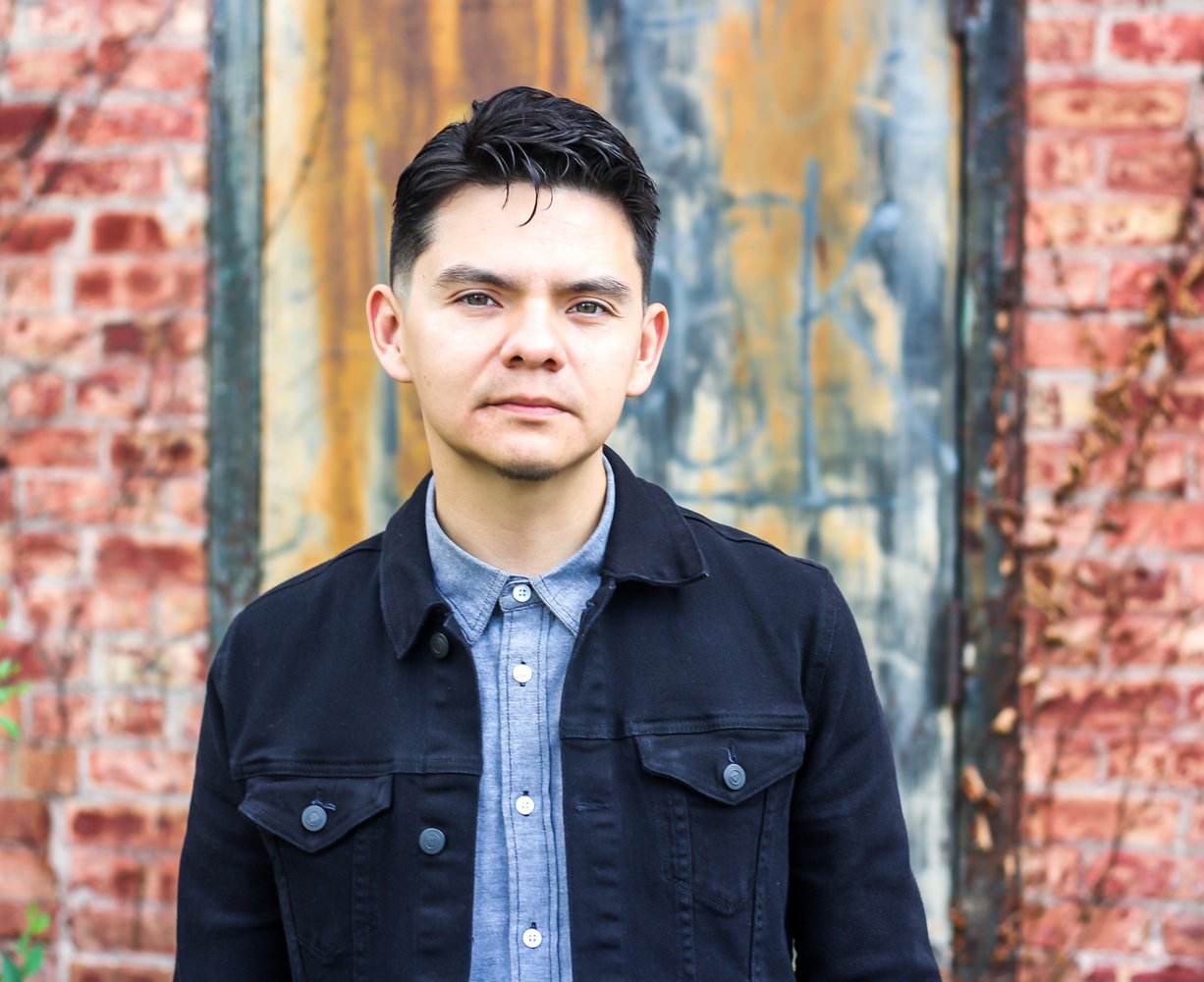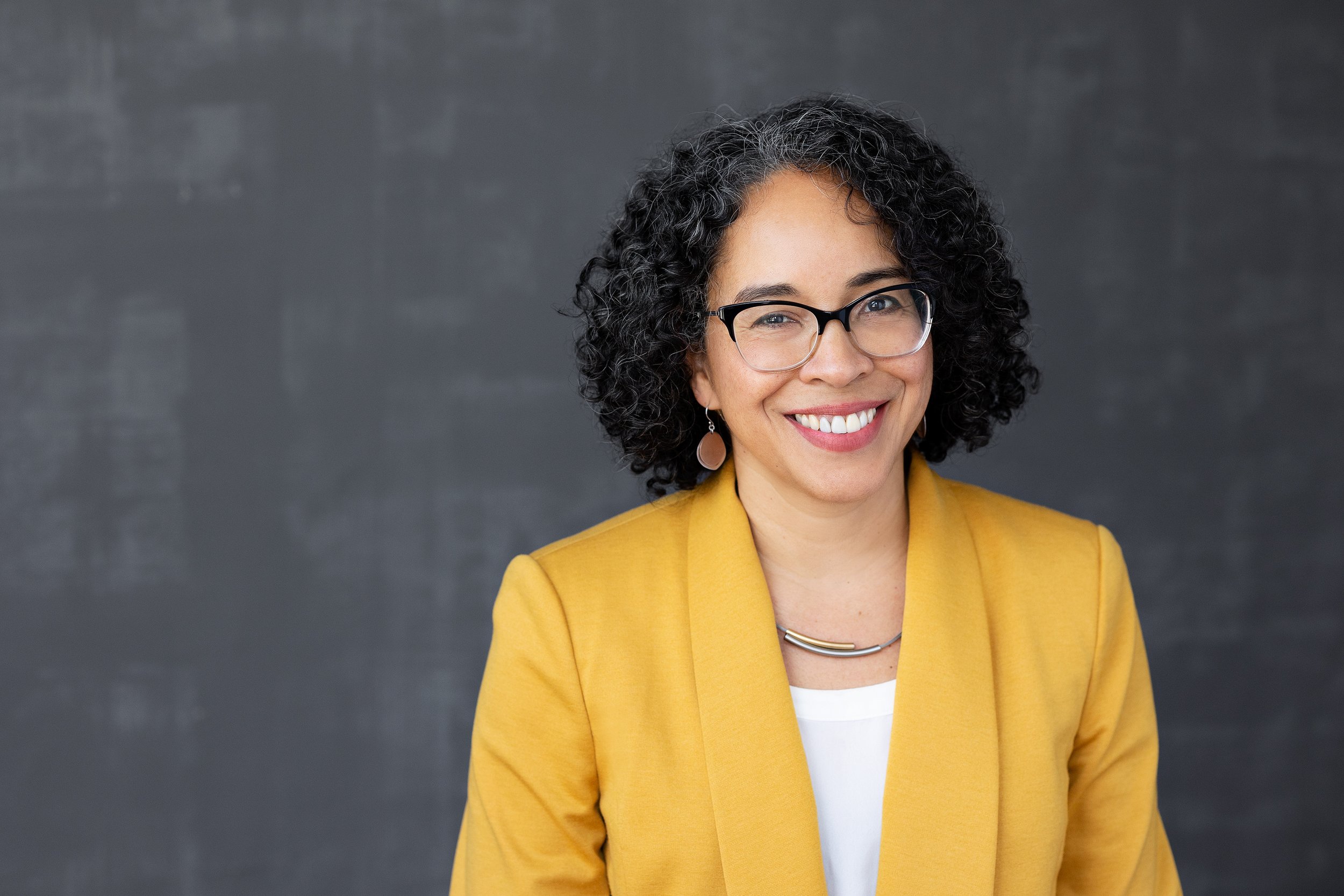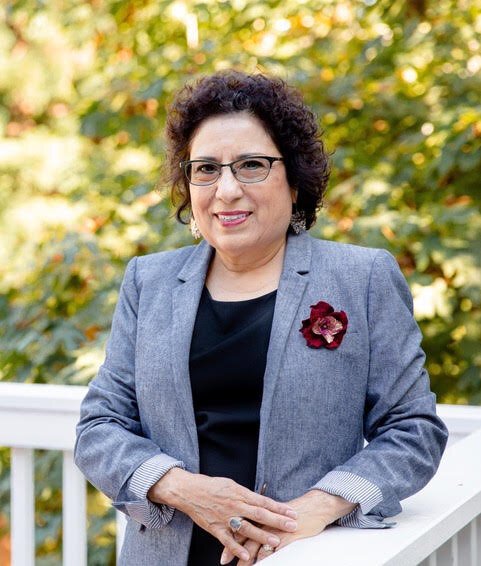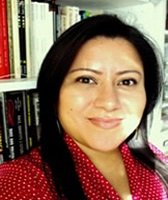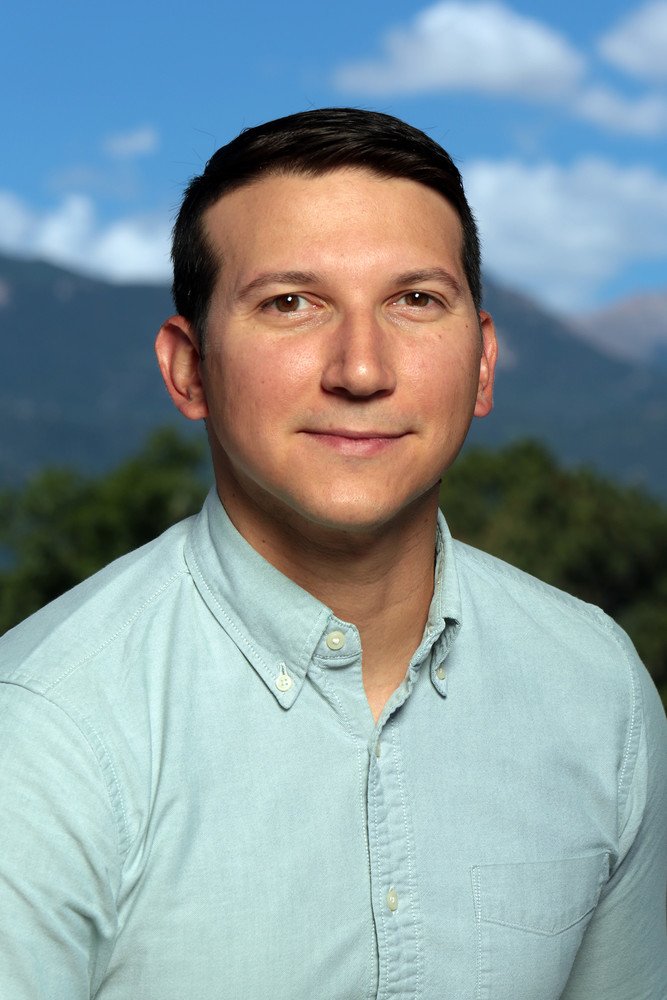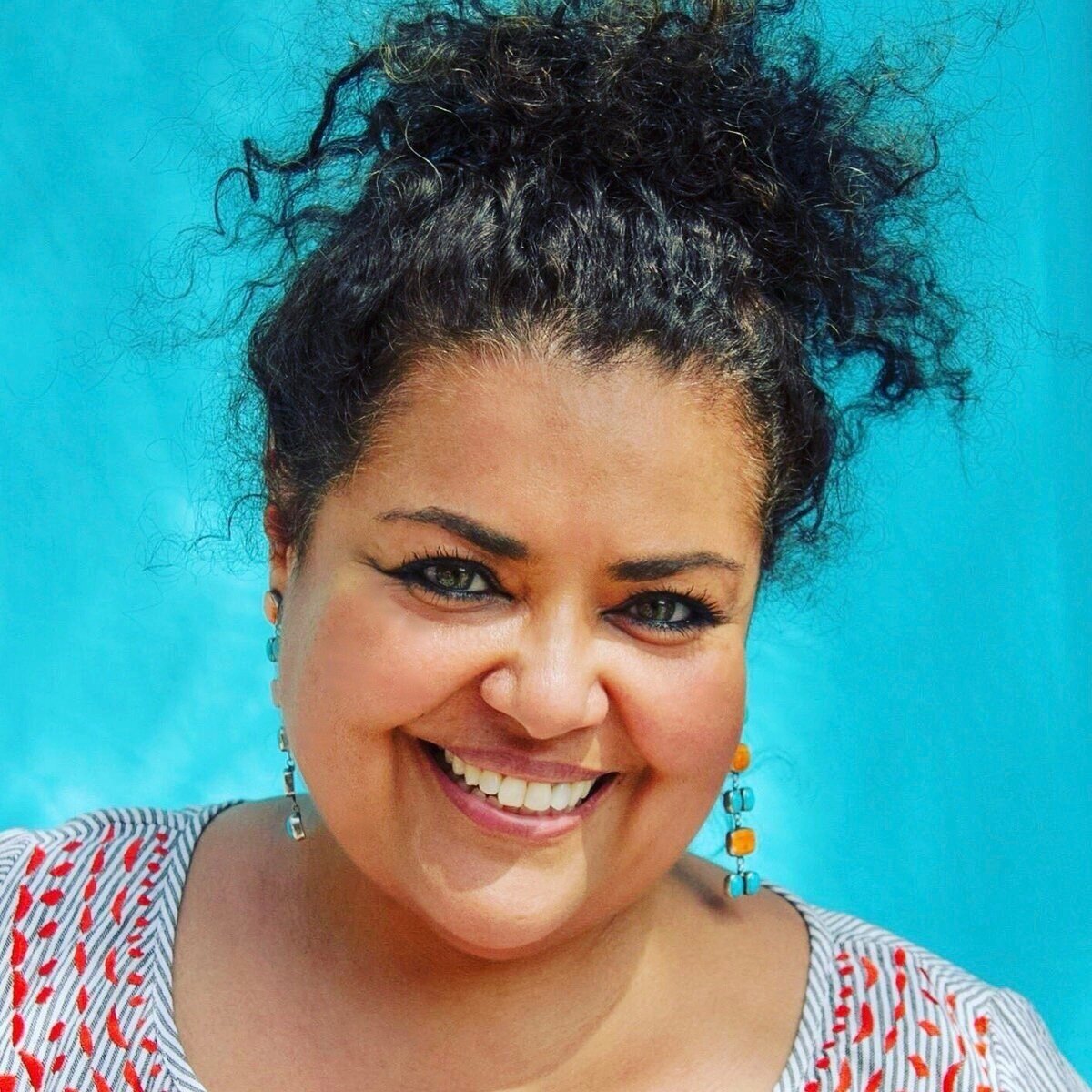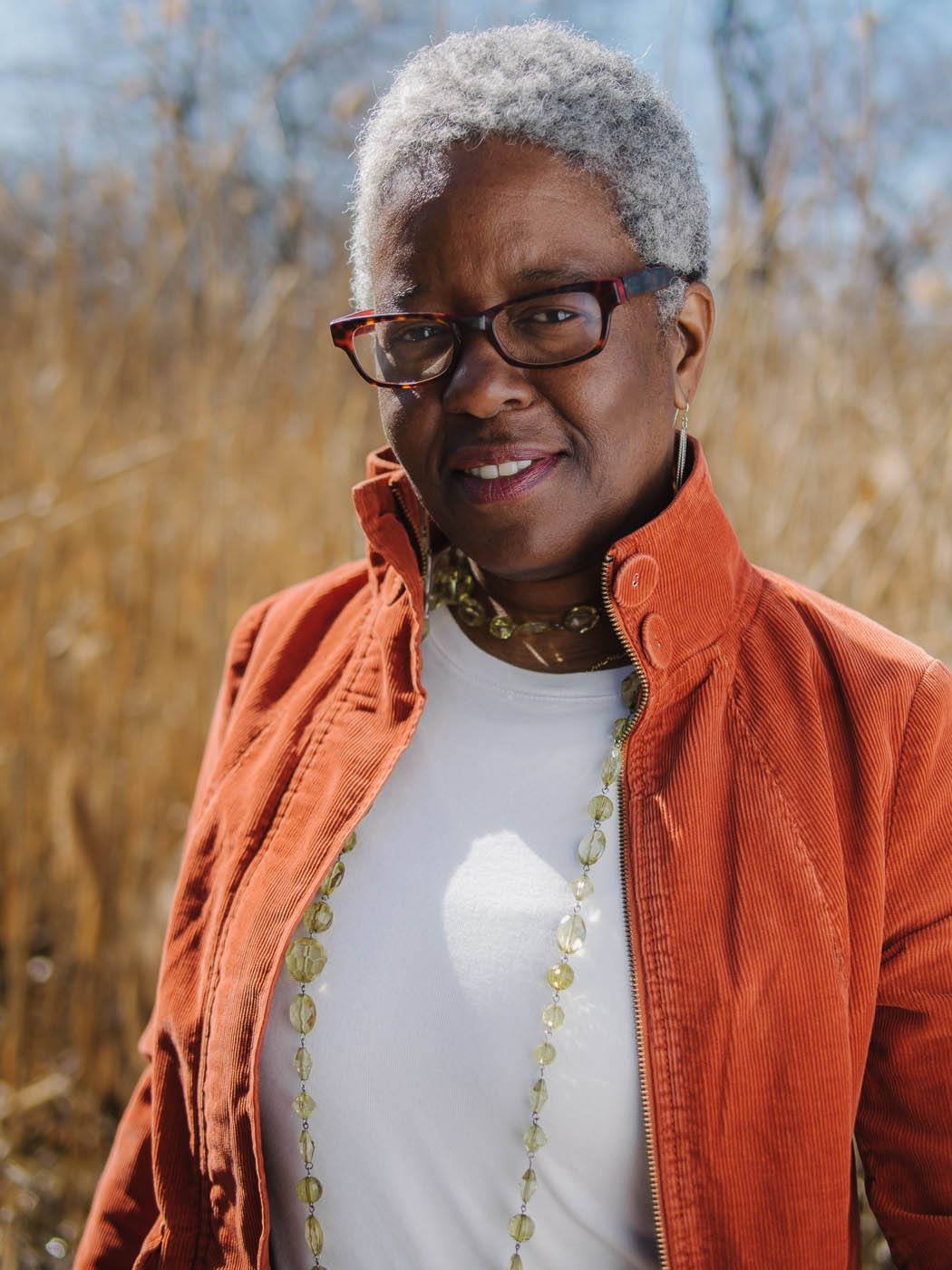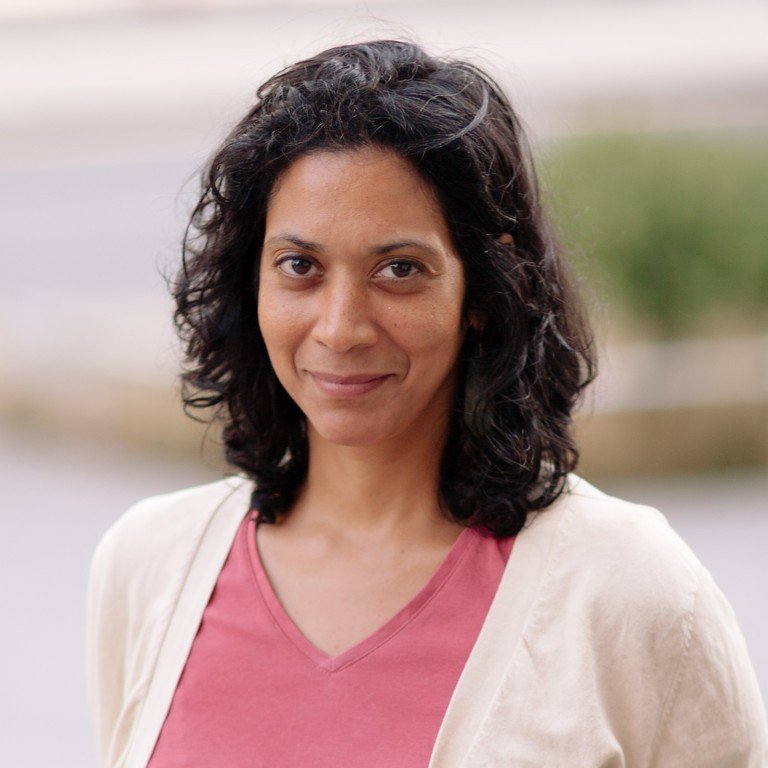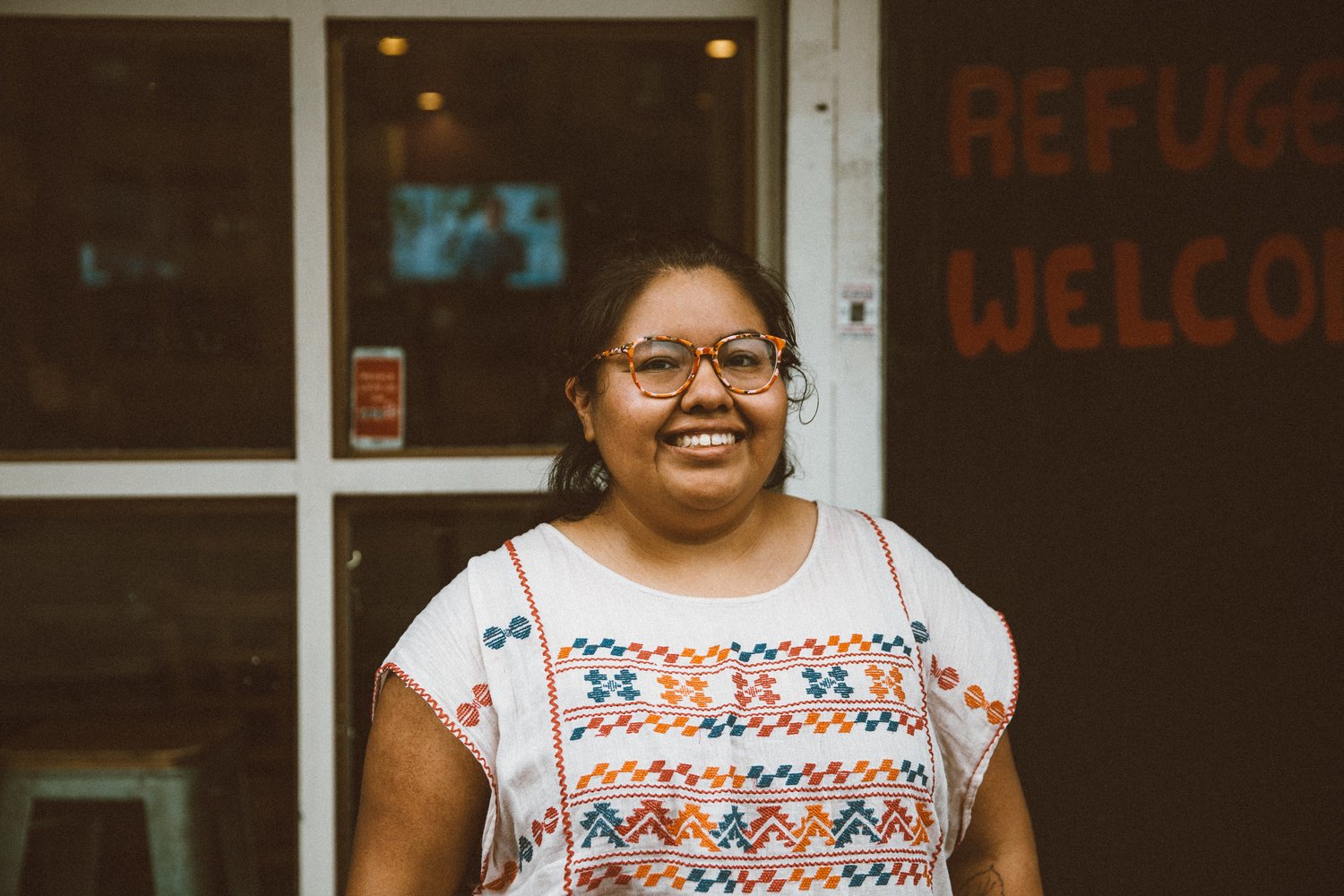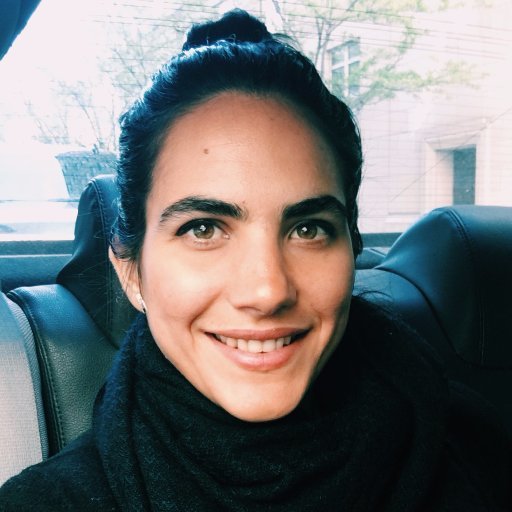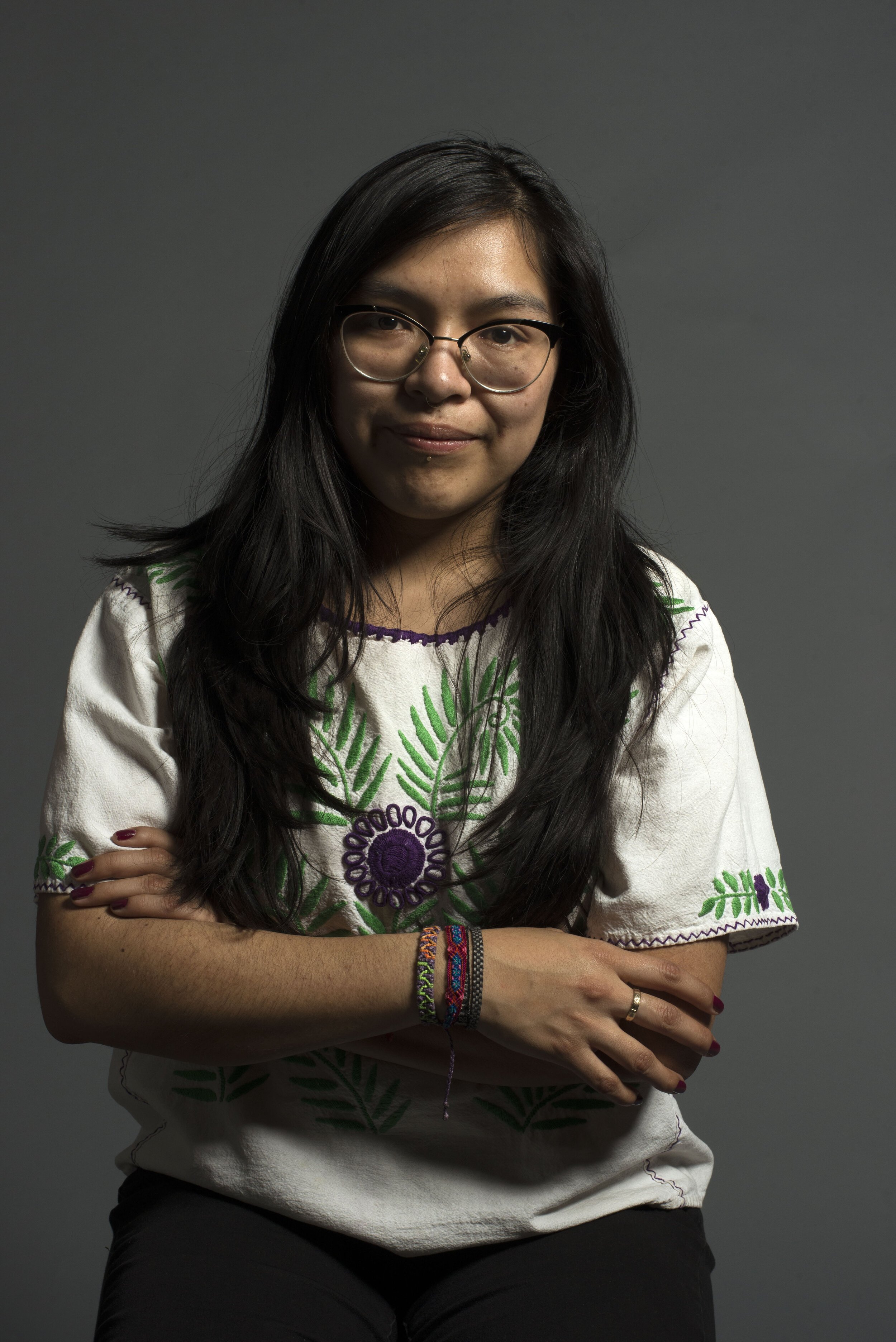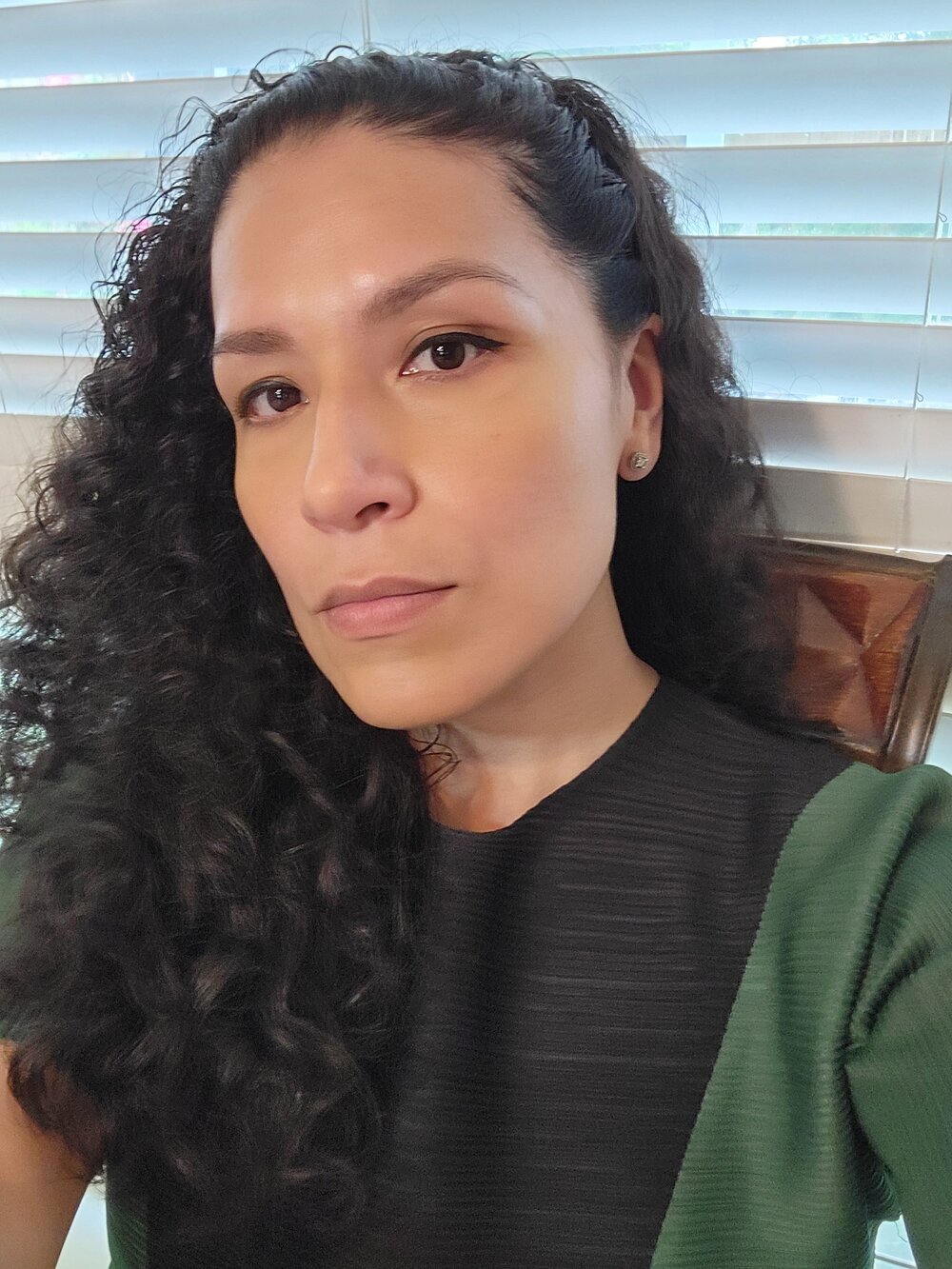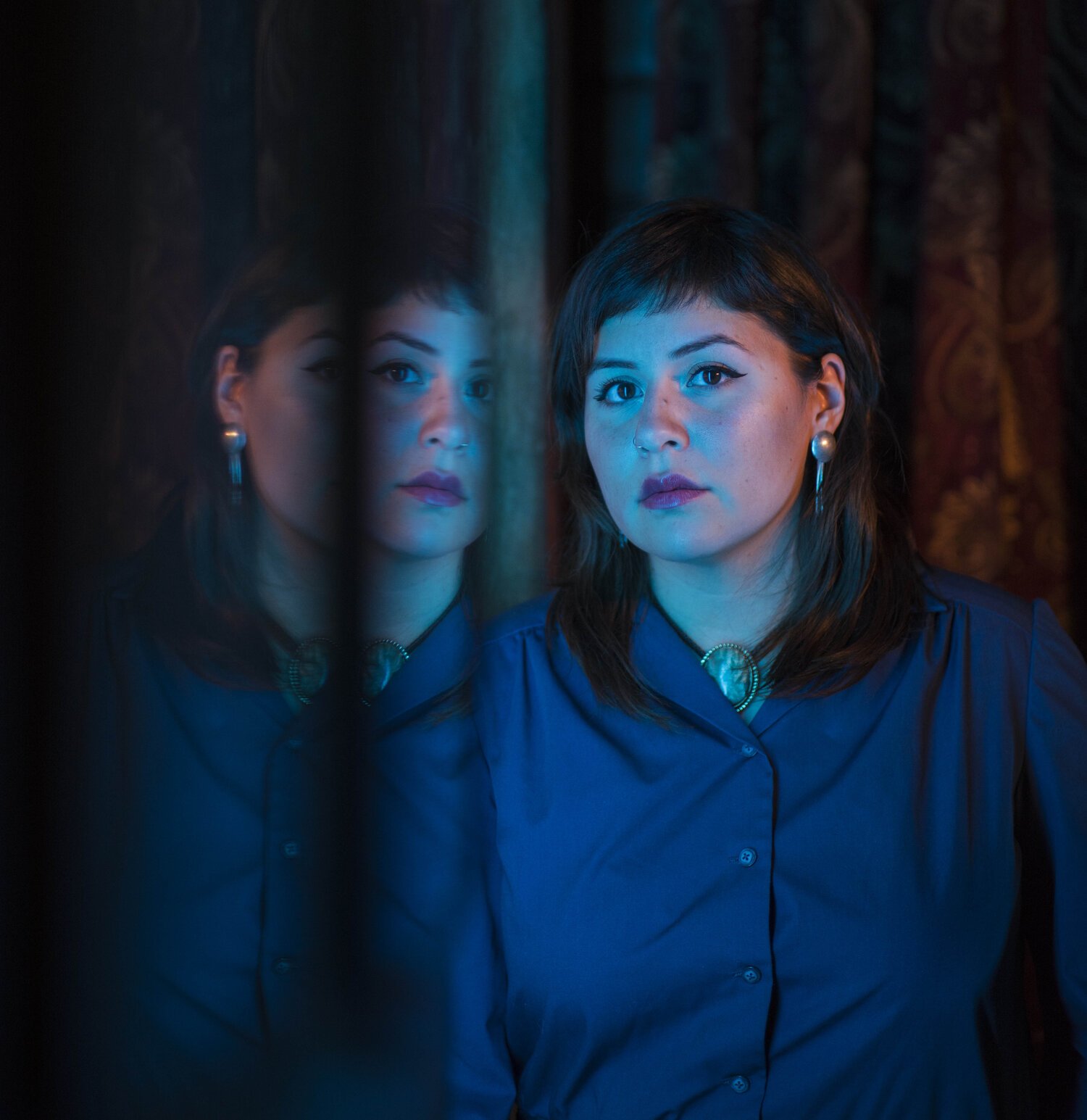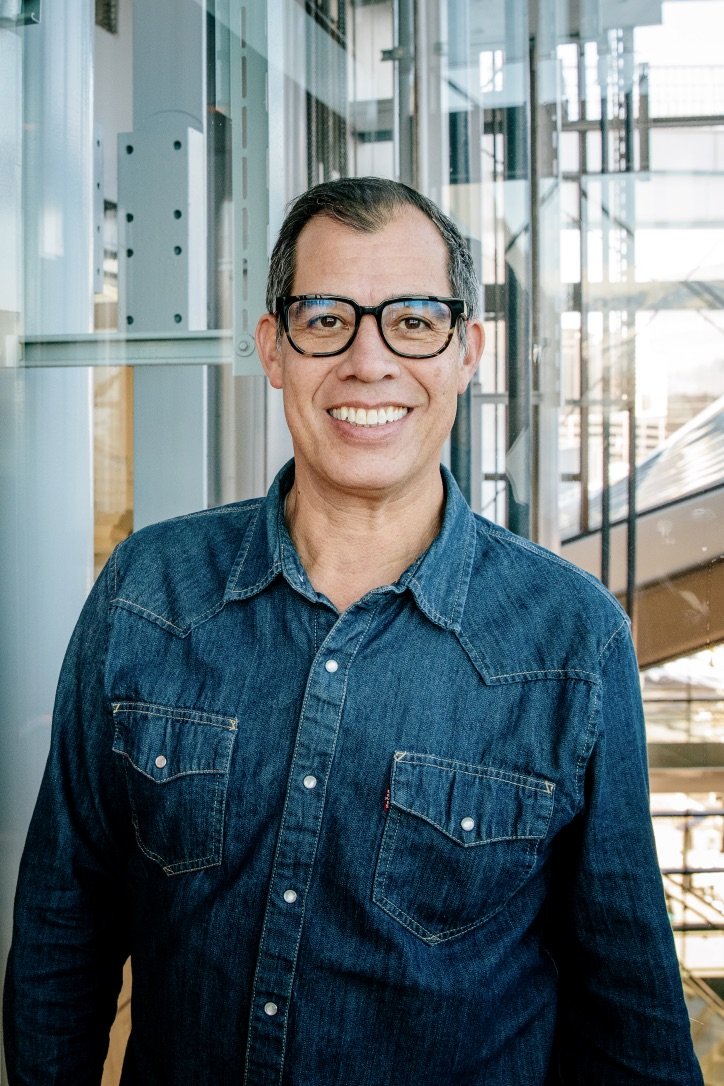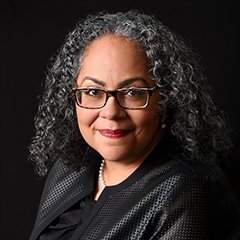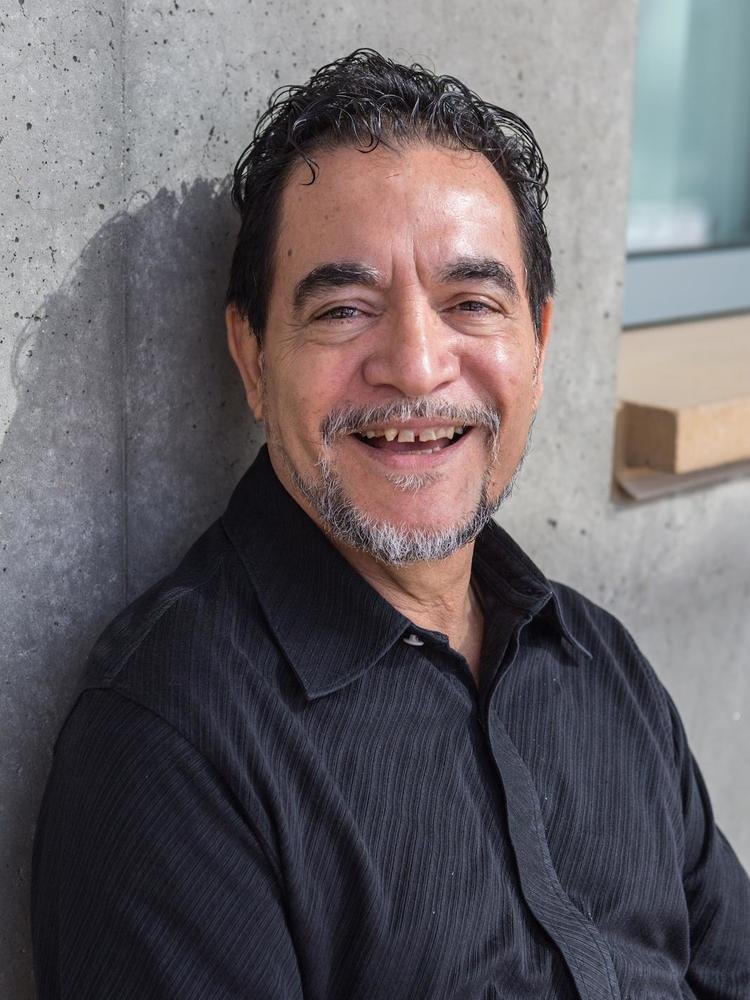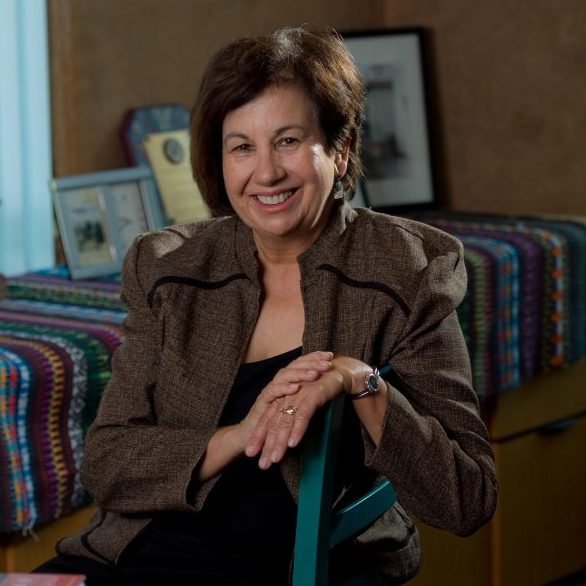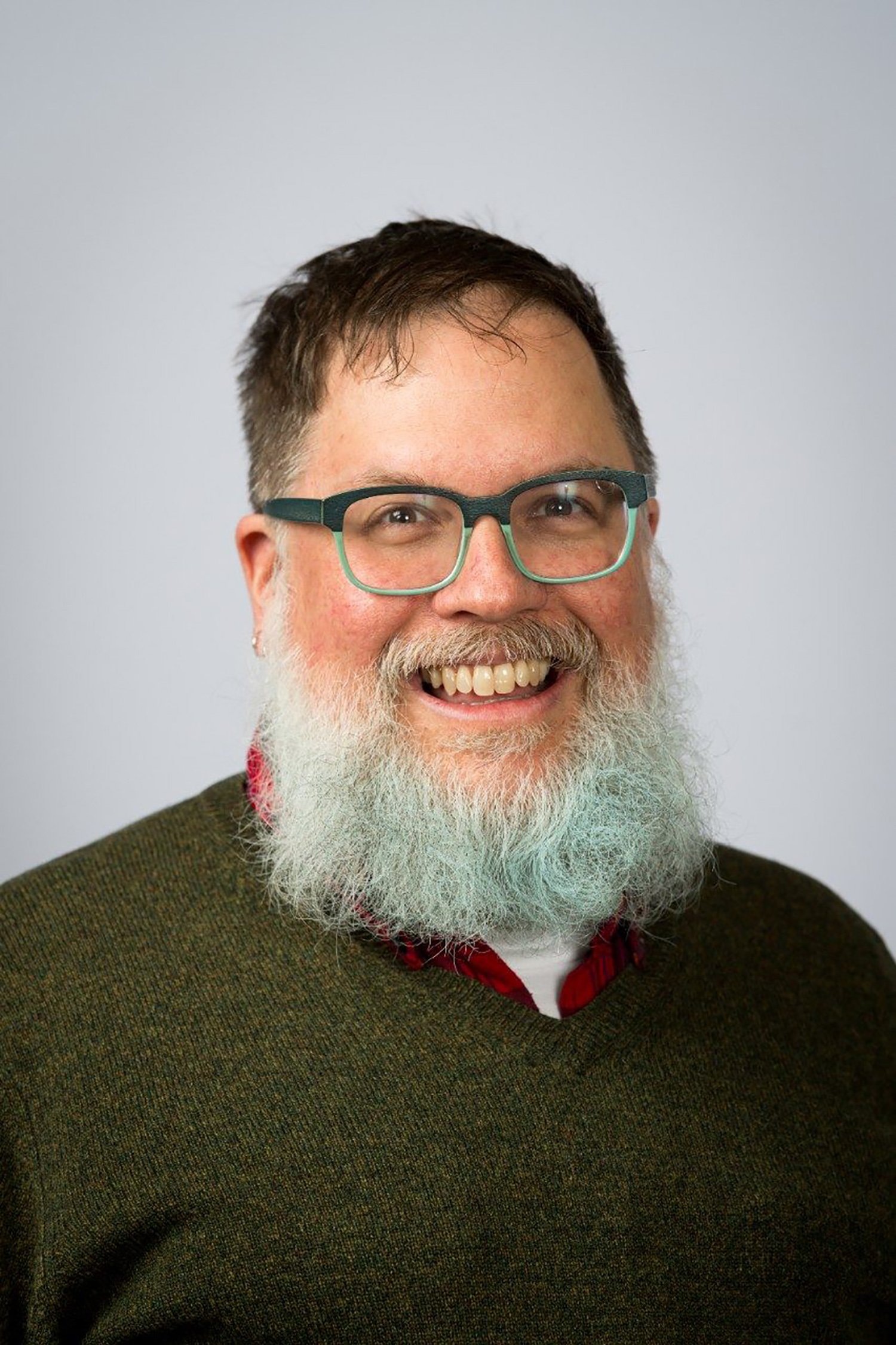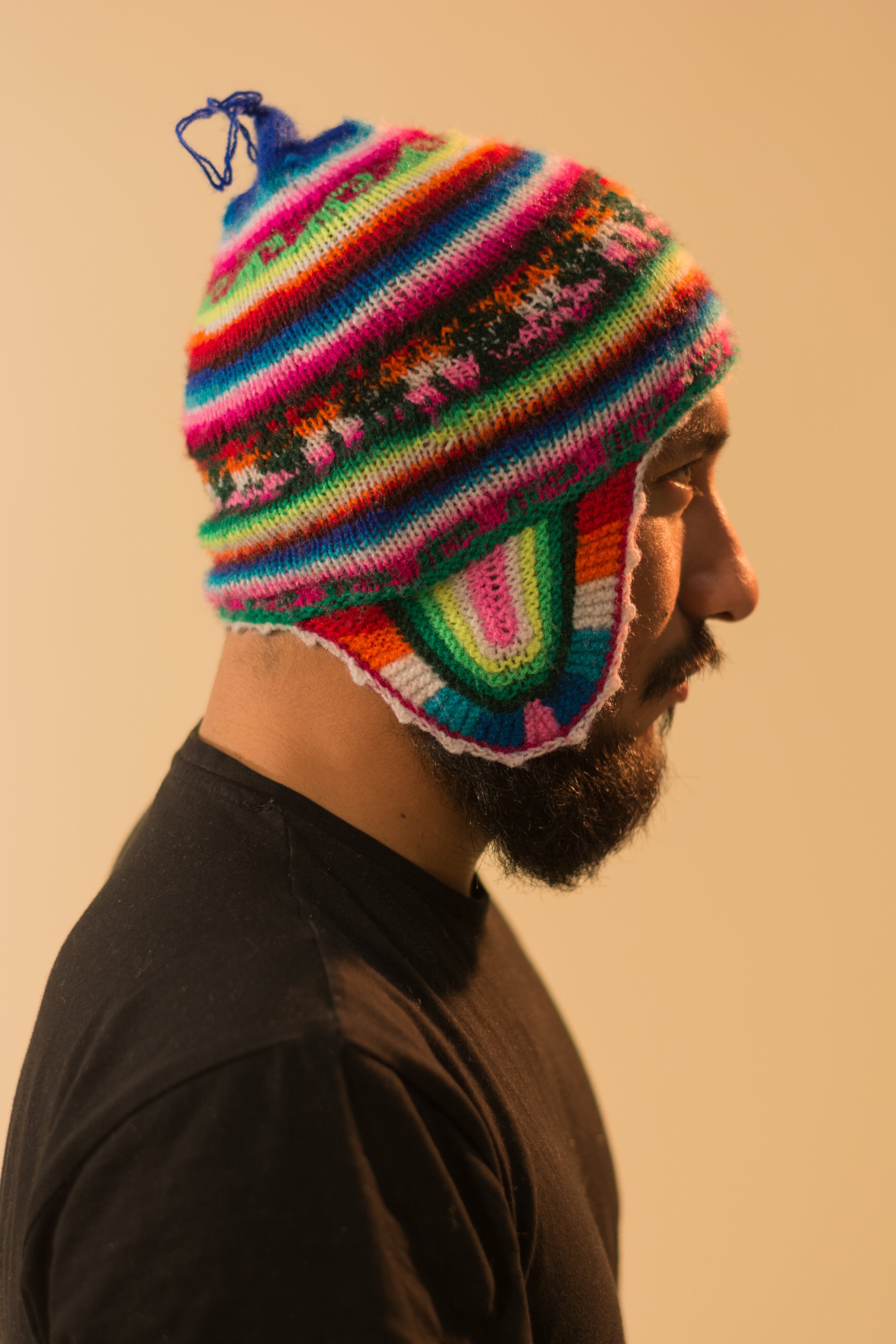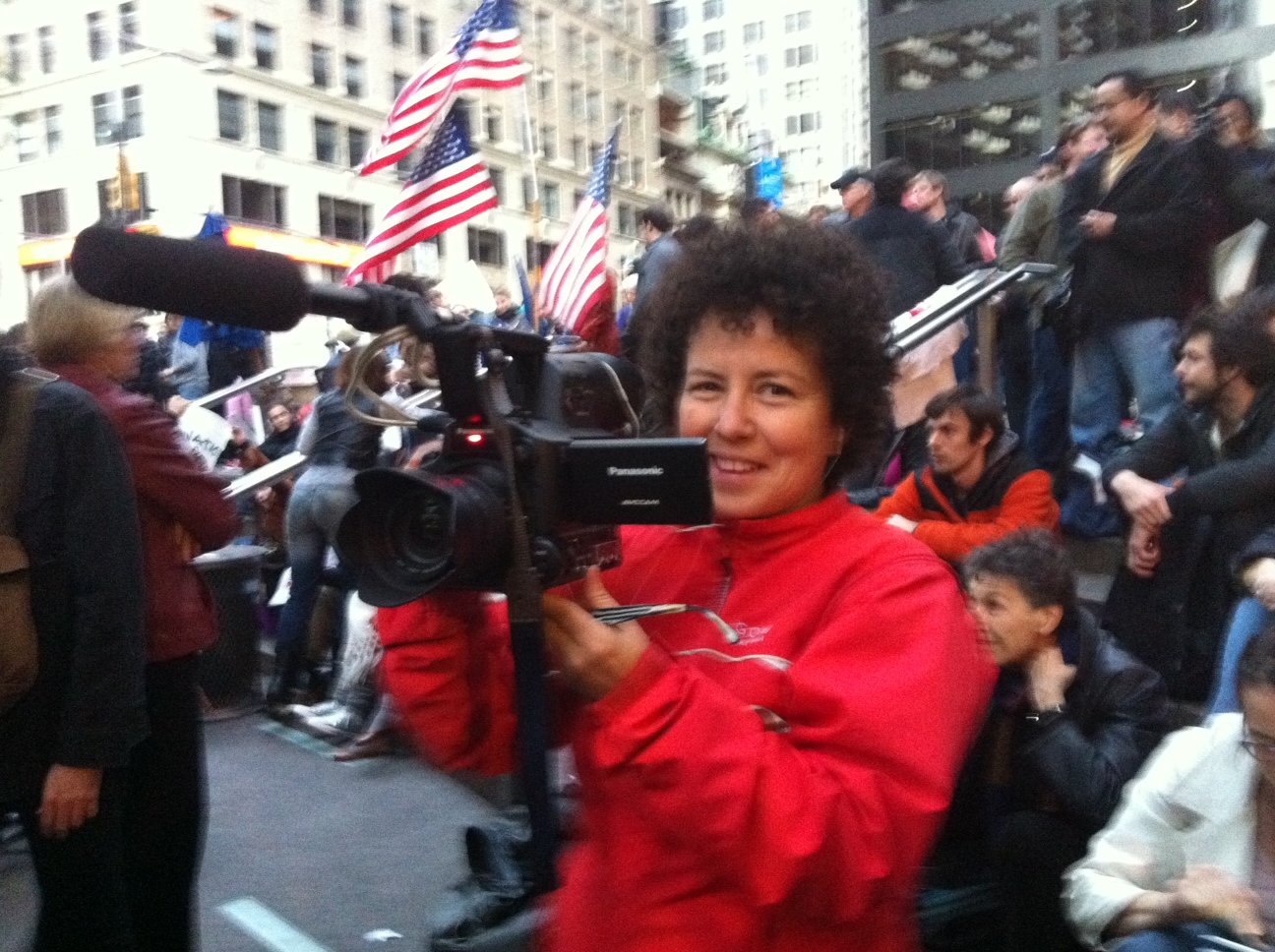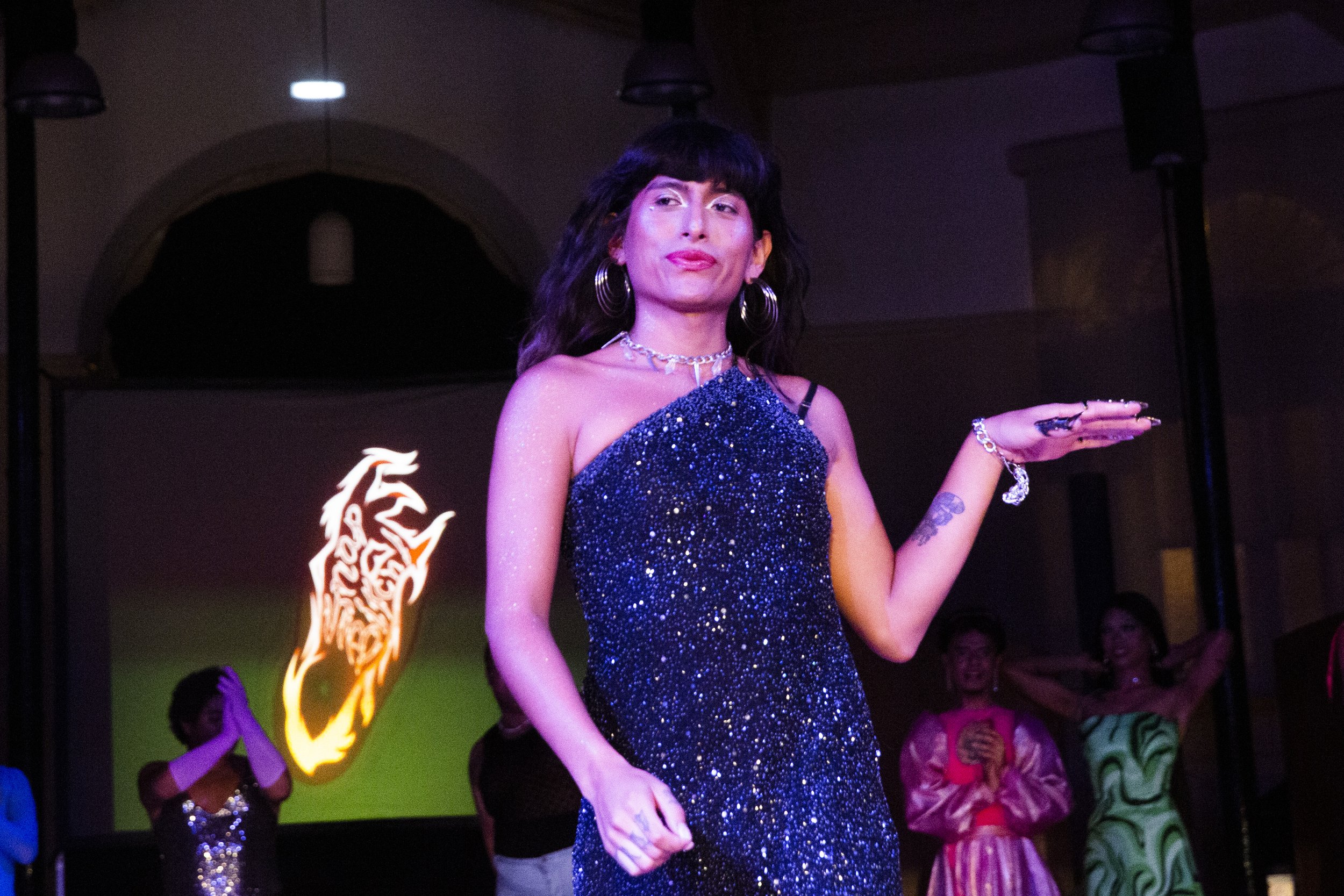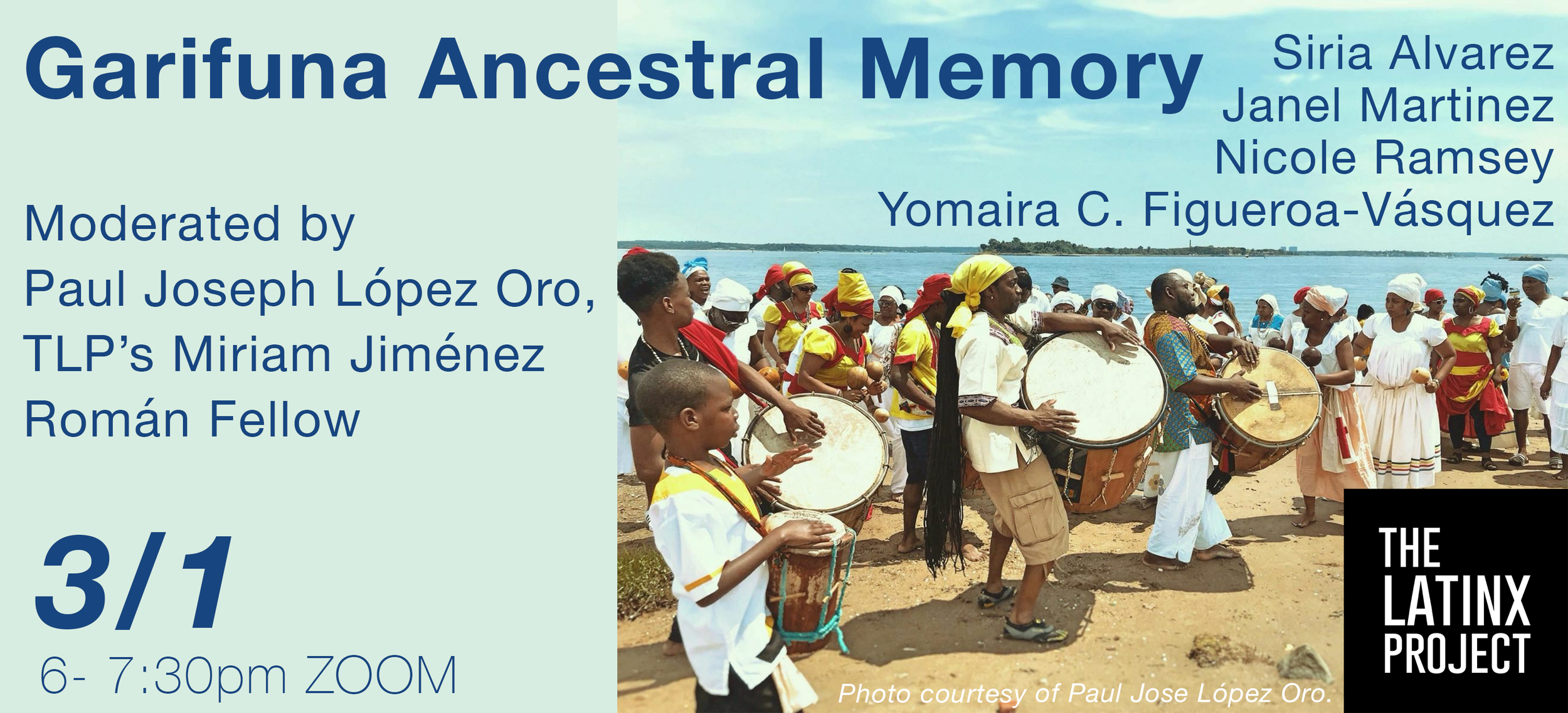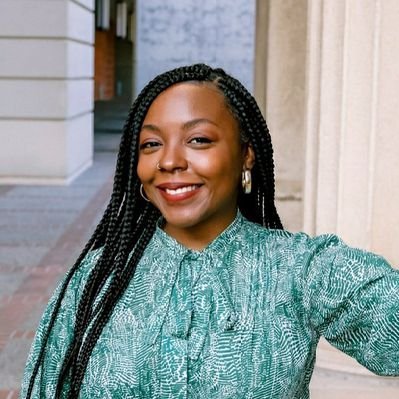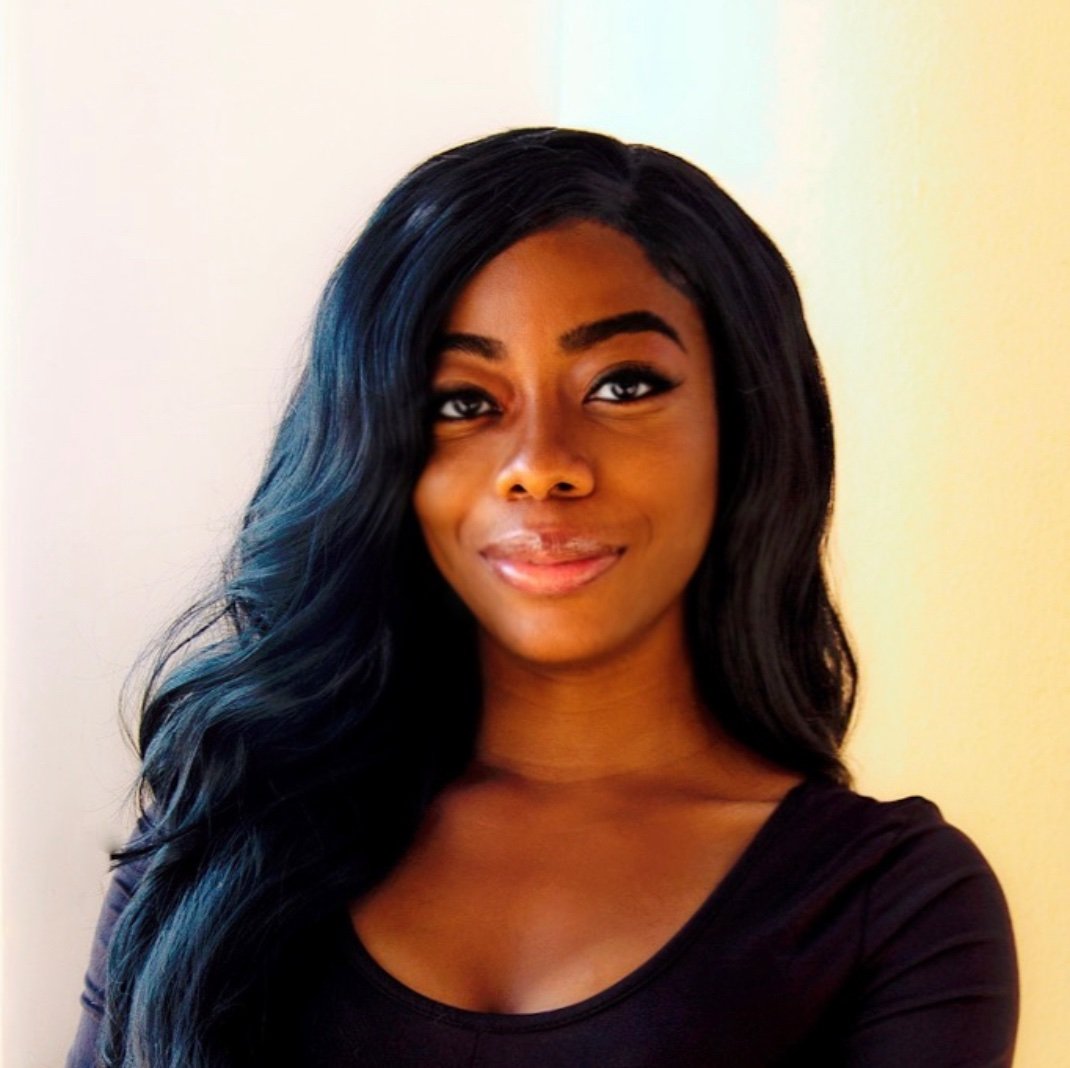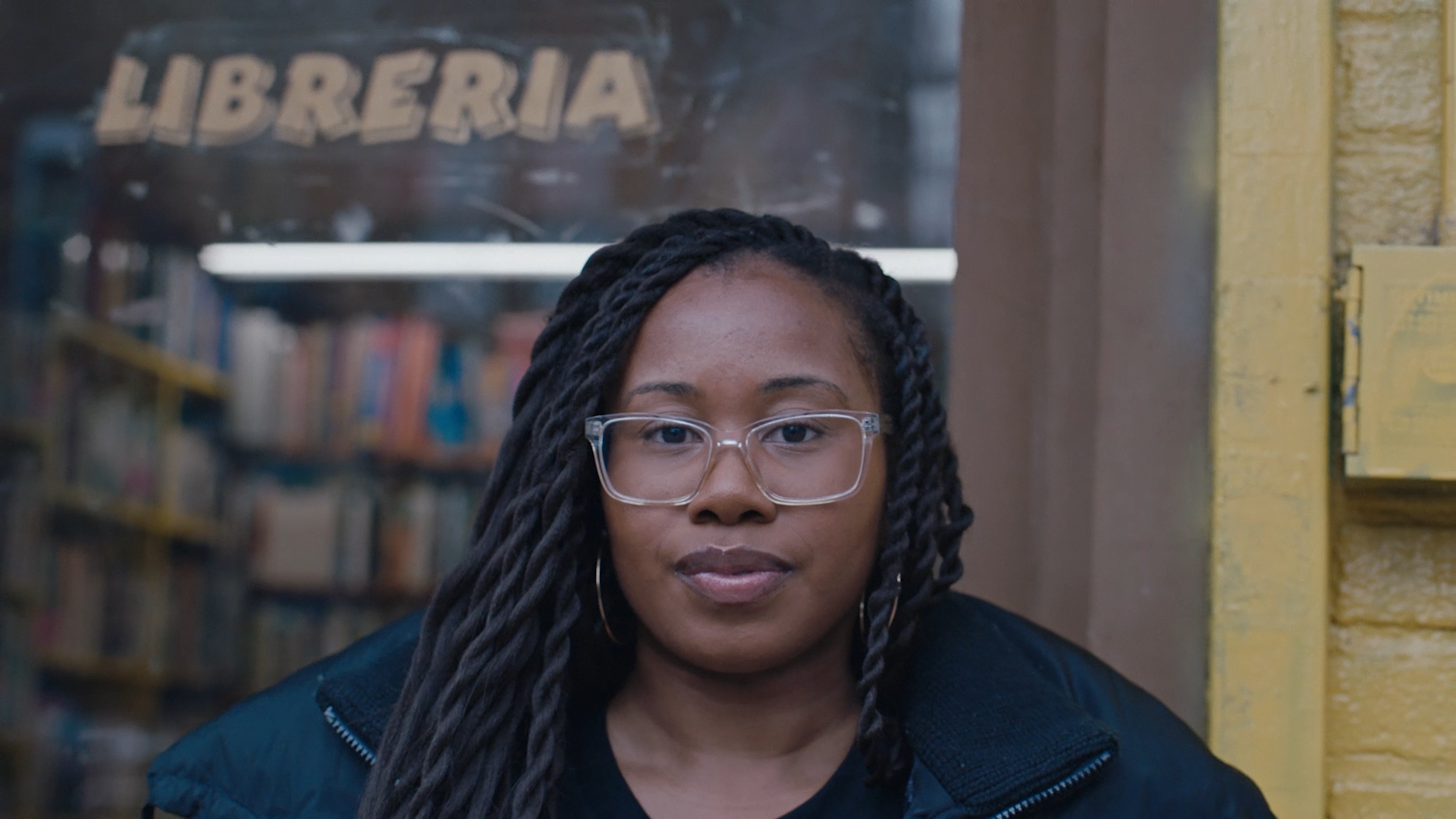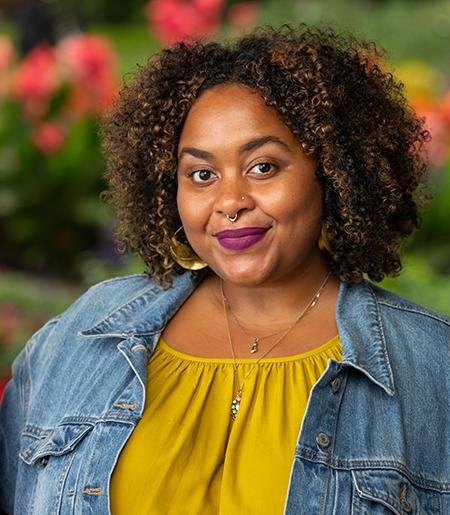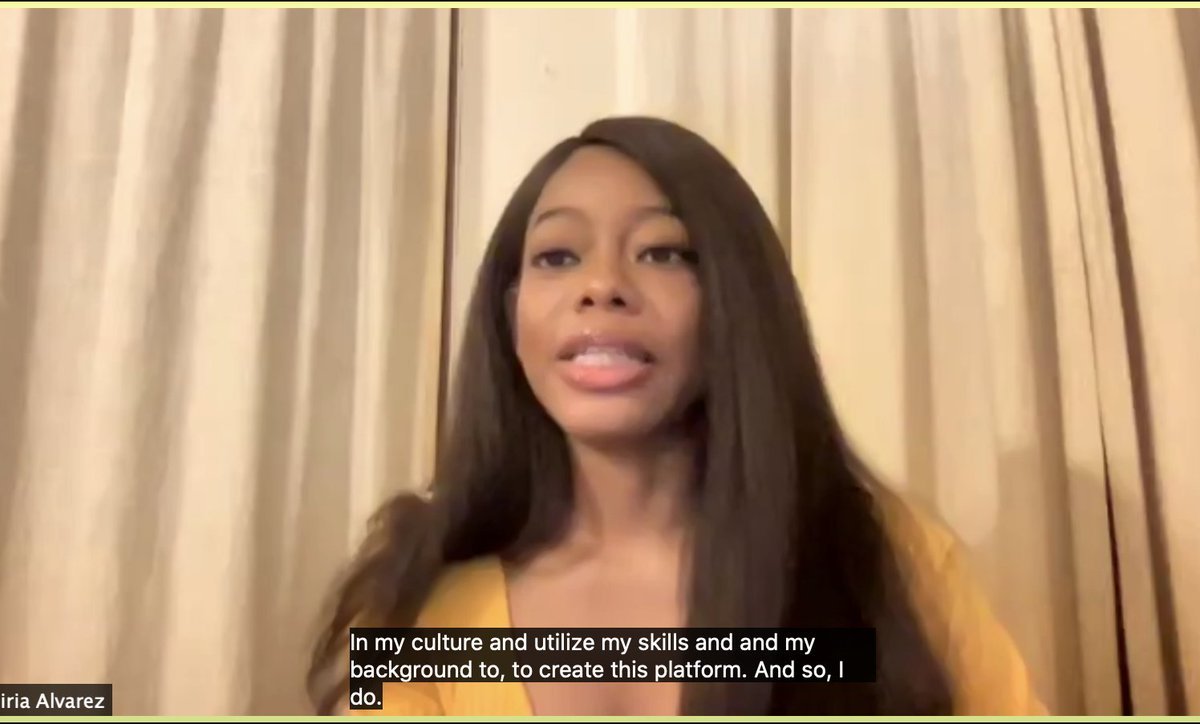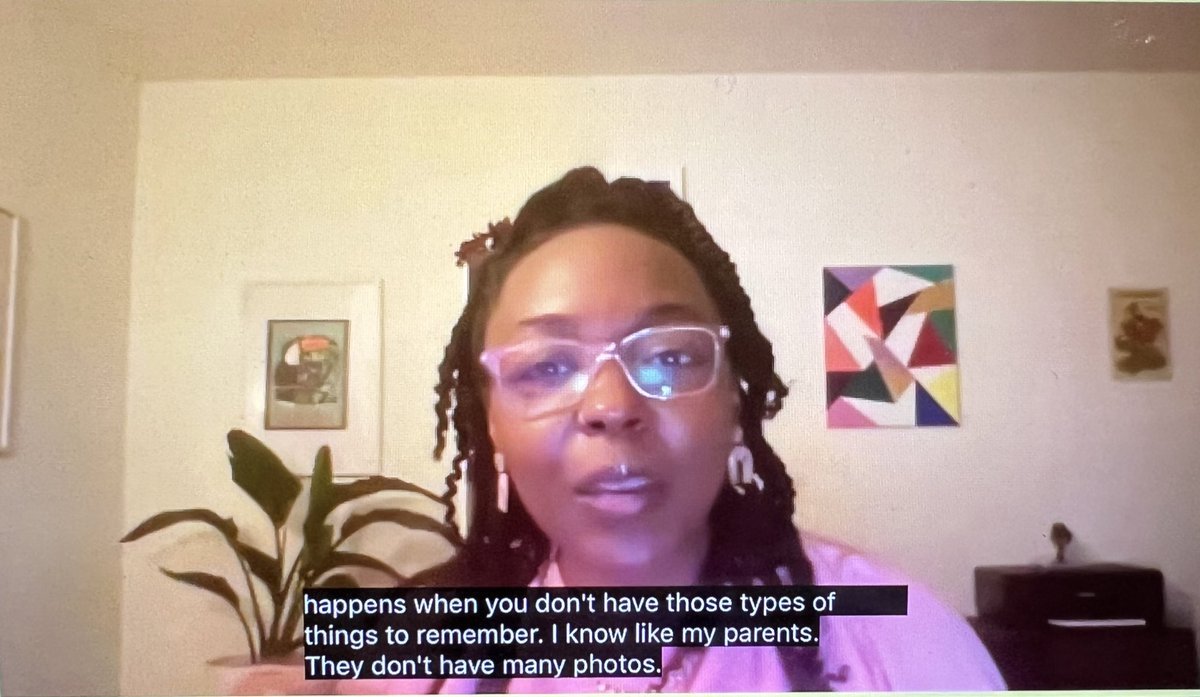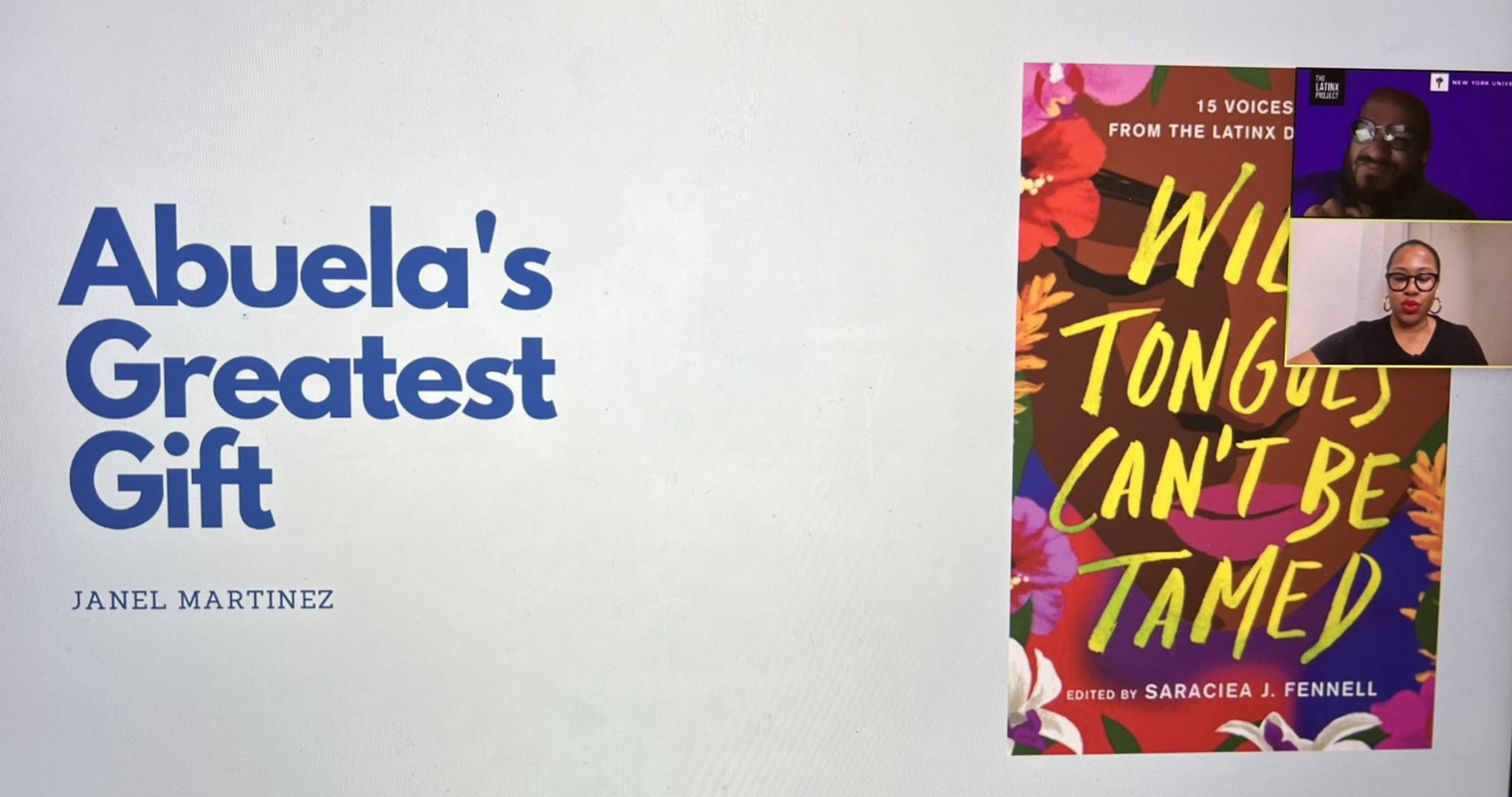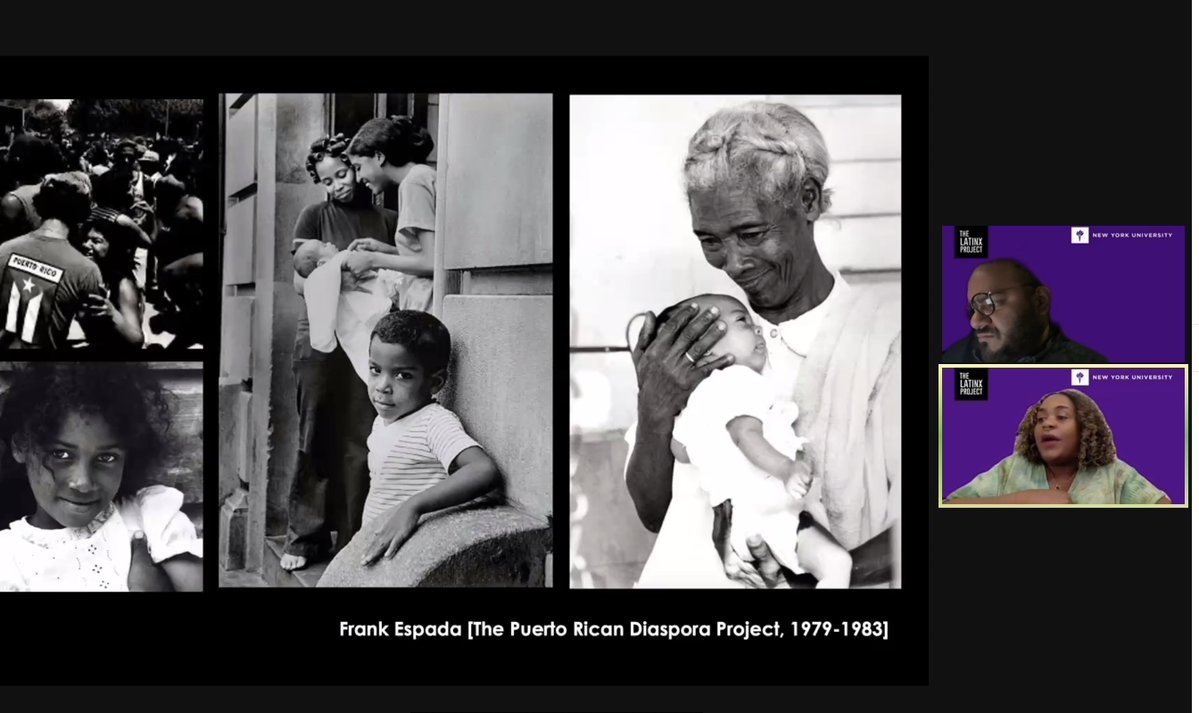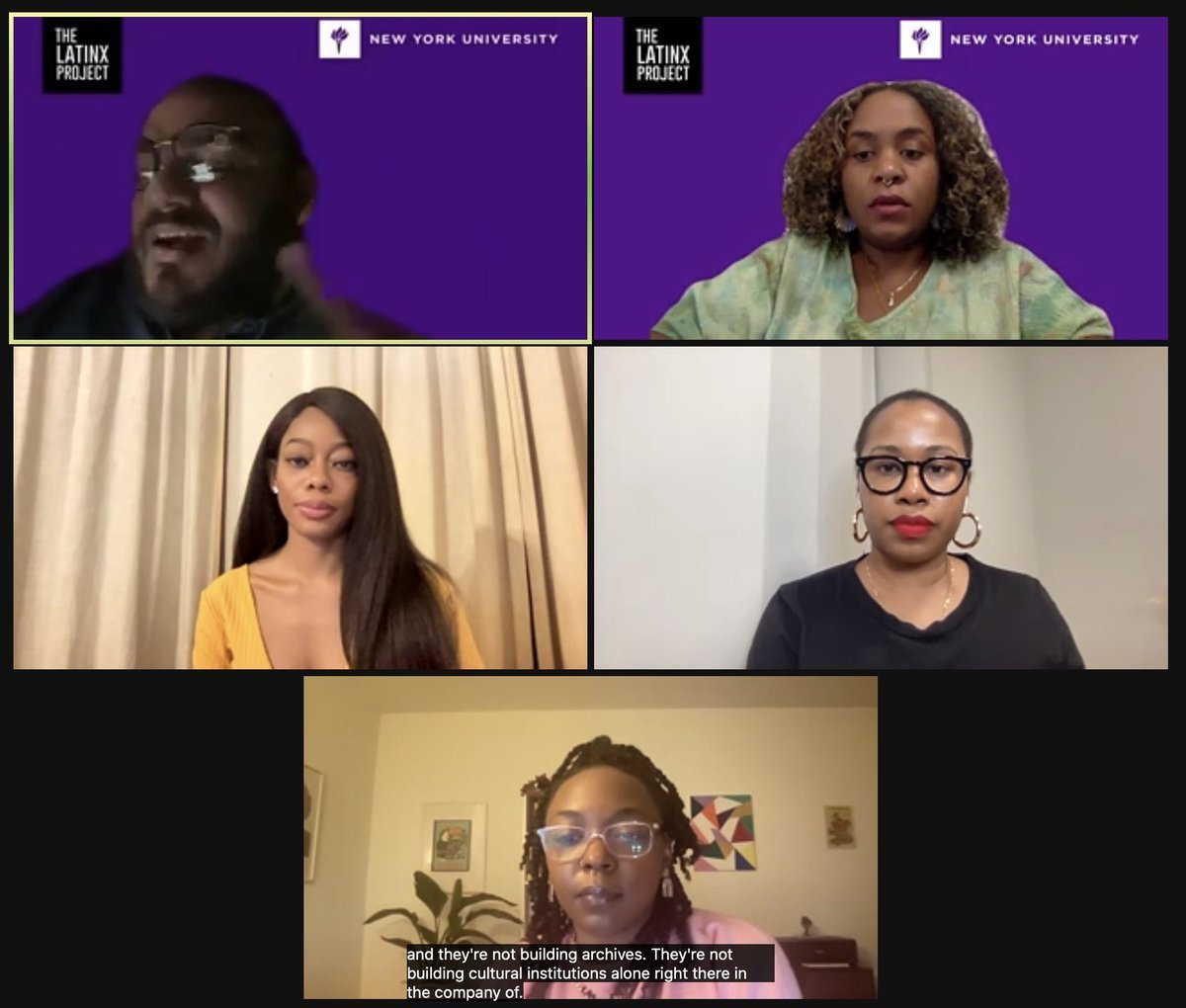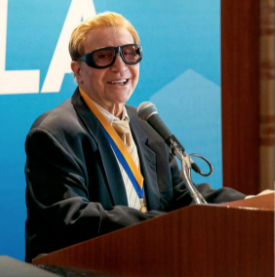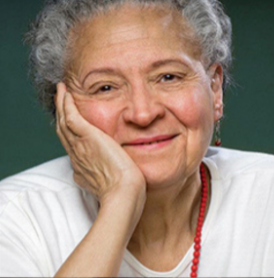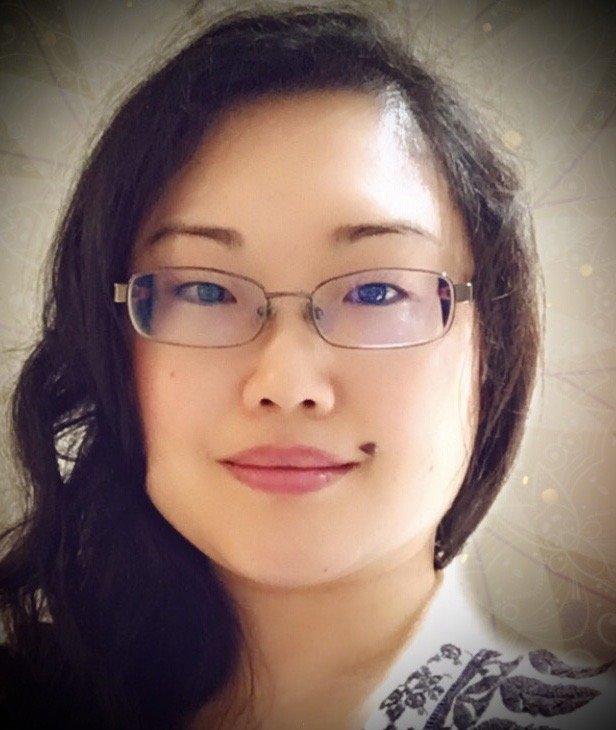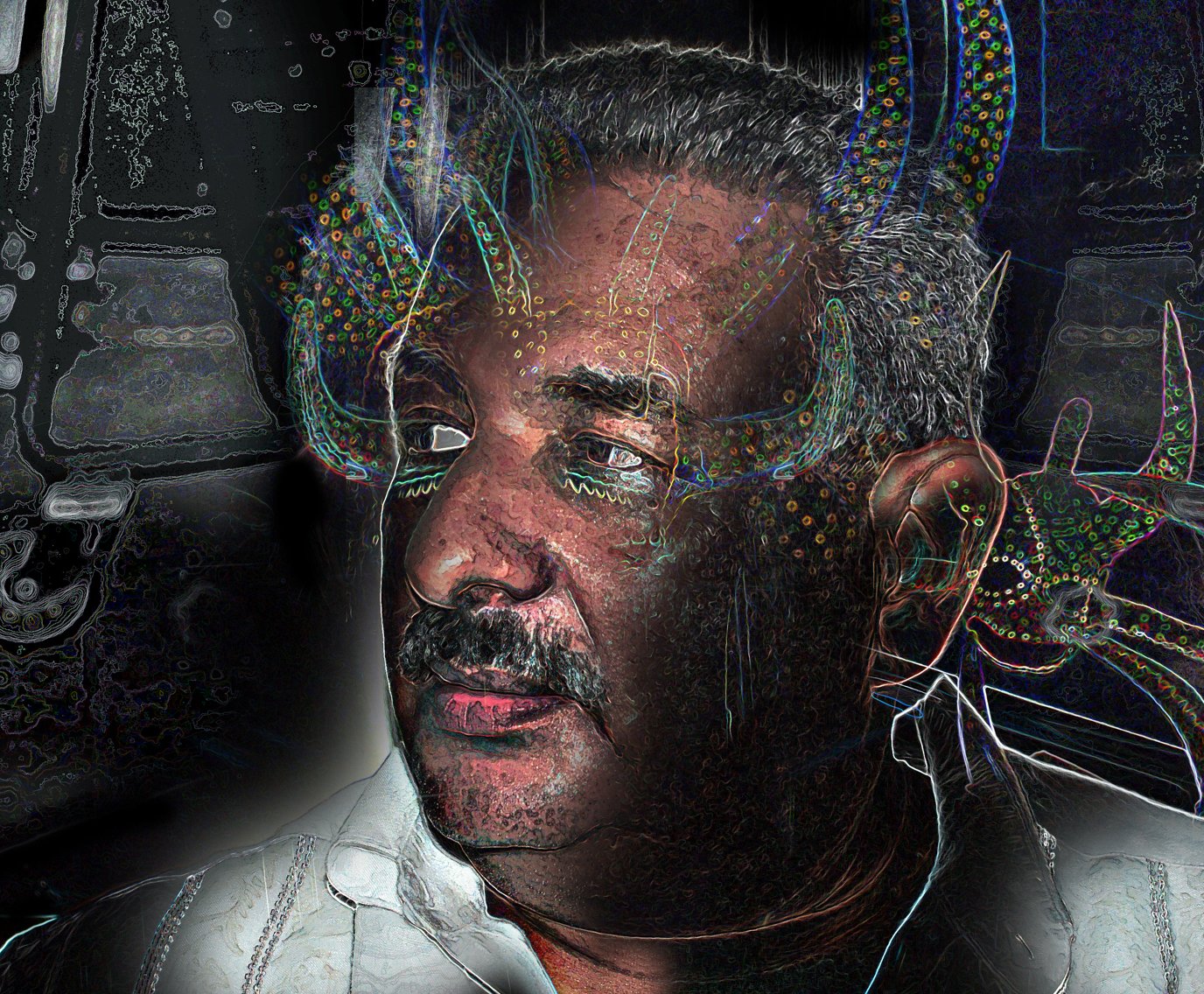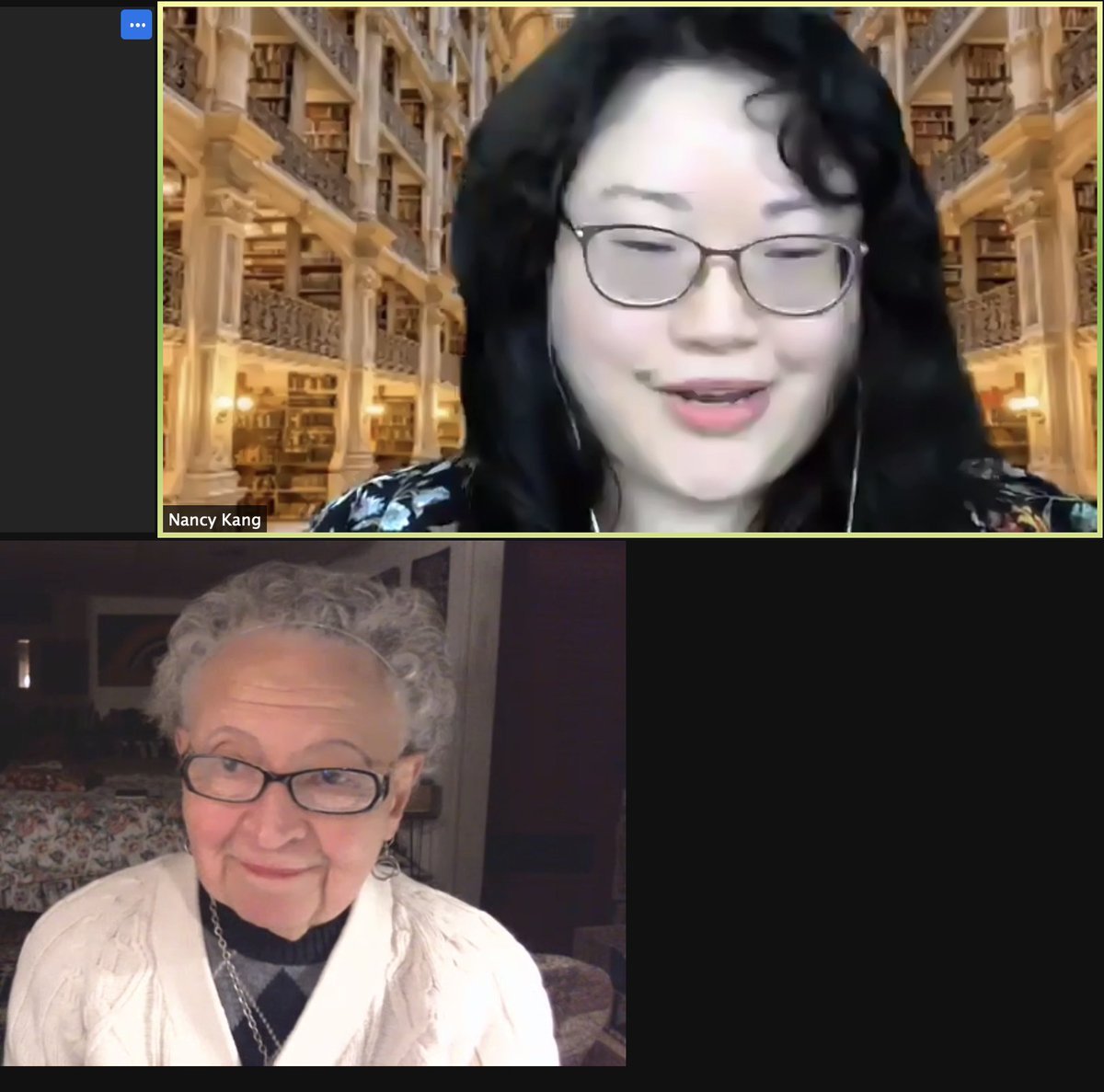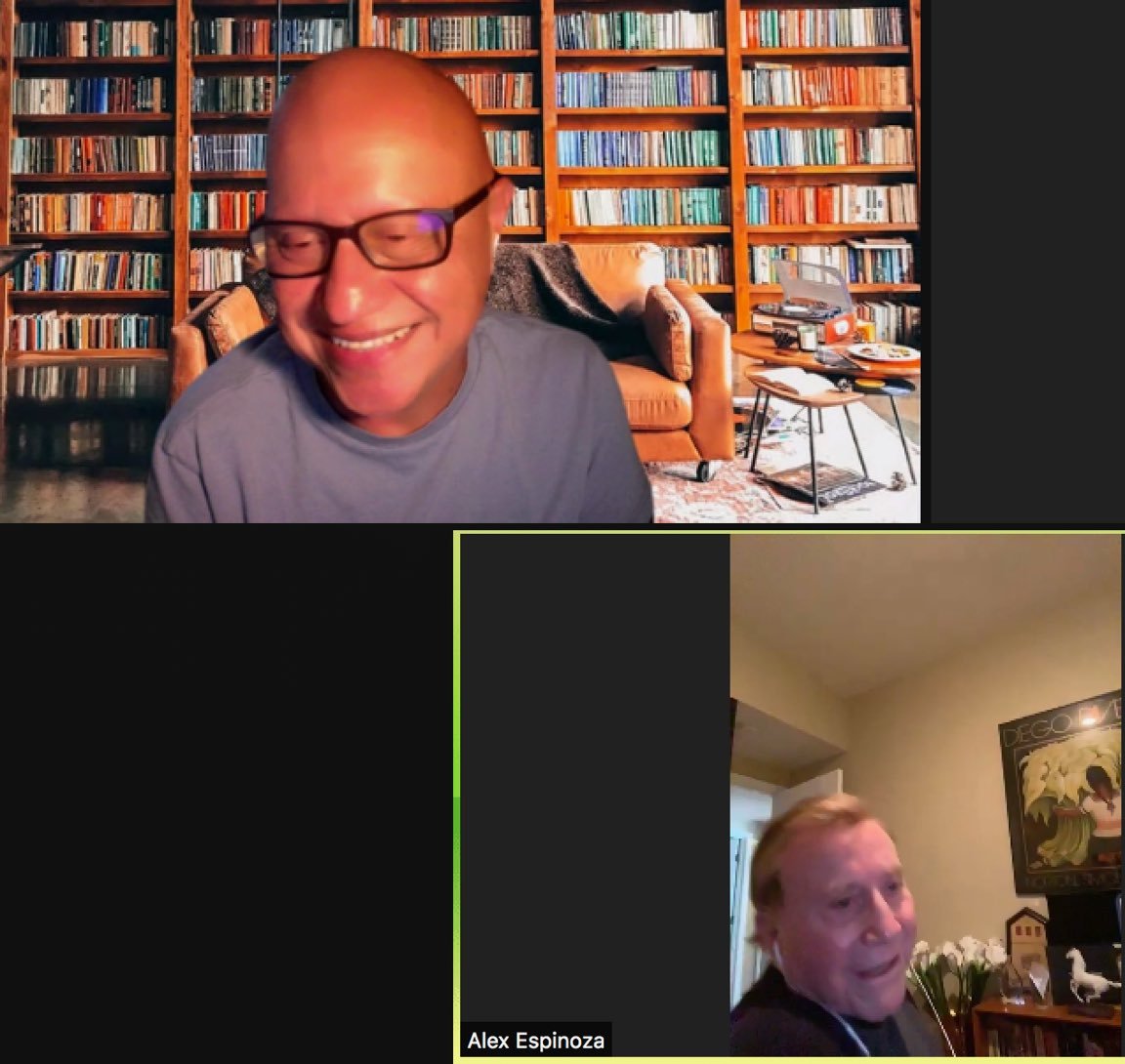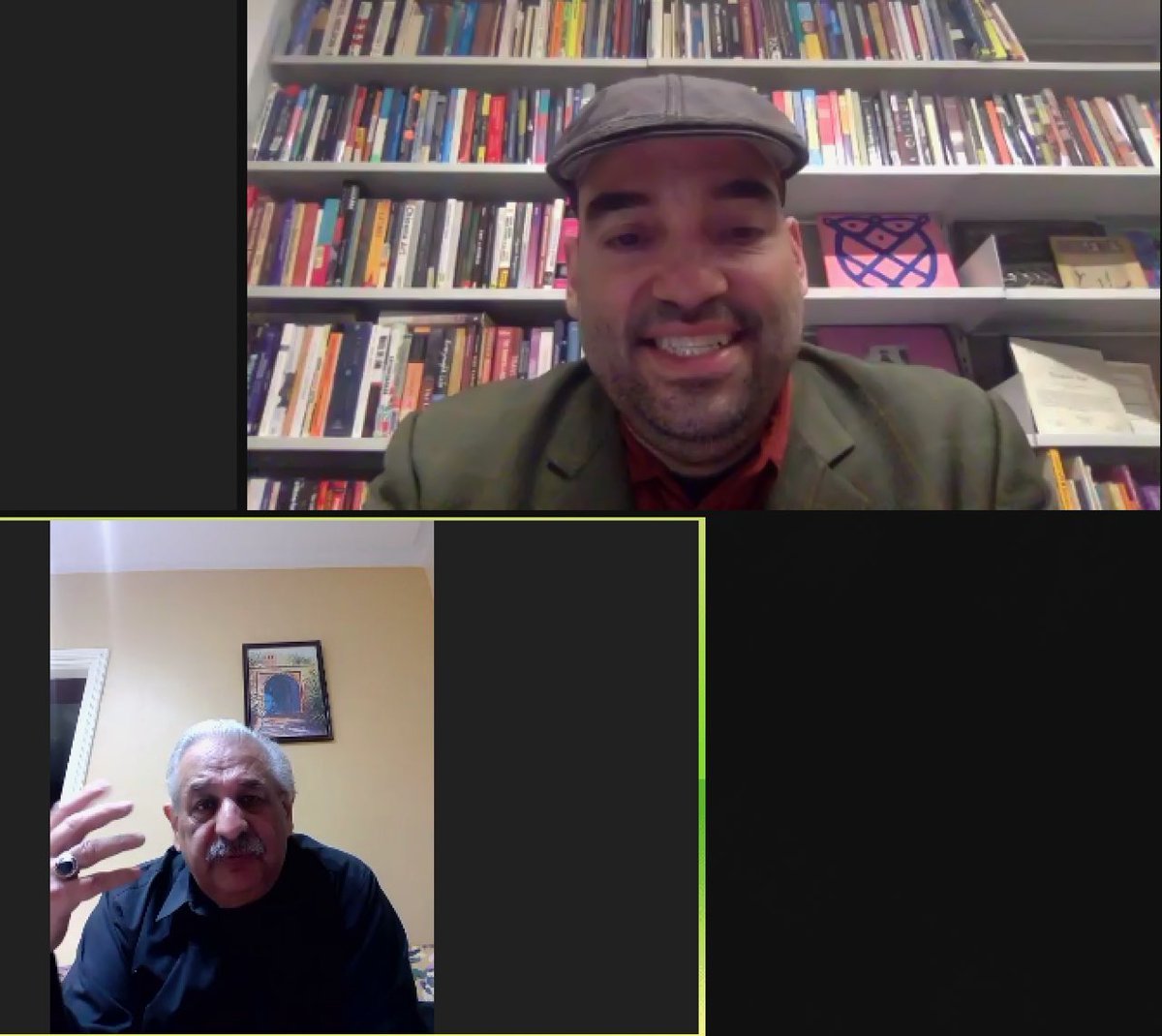
Closing Day Open House
Join us for a final Open House for Building Radical Soil and Mary Valverde: Encoded marks, unwinding paths. Light refreshments will be provided.
NYU requires that event organizers keep a participant record for all in-person events.
Please note that this event will also be subject to the university's current campus access procedures:
Guests will be required to show proof of vaccination upon entry.

Building Radical Soil - Artist Panel
Join us for the virtual panel of Building Radical Soil led by guest curator Sofía Shaula Reeser del Rio with select artists from the exhibition.
Event Recap
Watch the full recording below!

Book Talk, Ethnographic Refusals, Unruly Latinidades
Come hear from the vanguard of Latinx Anthropology about how new generations are changing and challenging the discipline.
Panelists include Patricia Zavella, Ana Aparicio, Dr. Andrea Bolivar, and Santiago Guerra; moderated by Alex E. Chávez and Gina M. Pérez.
Panelists
Artist-scholar-producer, Alex E. Chávez is the Nancy O'Neill Associate Professor of Anthropology at the University of Notre Dame, where he is also a Faculty Fellow of the Institute for Latino Studies. His research explores articulations of Latinx sounds and aurality in relation to race, place-making, and the intimacies that bind lives across physical and cultural borders. He is the author of the multi-award-winning book Sounds of Crossing: Music, Migration, and the Aural Poetics of Huapango Arribeño (Duke University Press, 2017)—recipient of the Association of Latina/o & Latinx Anthropologists Book Award (2018). And in 2016 he produced the Smithsonian Folkways album Serrano de Corázon (Highlander at Heart). He has consistently crossed the boundary between performer and ethnographer in the realms of both academic research and publicly engaged work as an artist and producer. Chávez has recorded and toured with his own music projects, composed documentary scores (most recently Emmy Award-winning El Despertar [2016]), and collaborated with Grammy Award-winning and Grammy Award-nominated artists. In 2020, he was named one of ten Mellon Emerging Faculty Leaders by the Institute for Citizens and Scholars (formerly the Woodrow Wilson National Fellowship Foundation), and also recently concluded a National Endowment for the Humanities Long-Term Fellowship at the Newberry Library in Chicago. He currently also serves as a Governor on the Chicago Chapter Board of the Recording Academy.
Gina Perez is a cultural anthropologist and Professor in the Department of Comparative American Studies at Oberlin College. Pérez is the author of two award-winning books—The Near Northwest Side Story: Gender, Migration and Puerto Rican Families (2004, University of California Press) and Citizen, Student, Soldier: Latina/o Youth, JROTC and the American Dream (2015, New York University Press). She is also the coeditor of two anthologies: Beyond el Barrio: Everyday Life in Latina/o America (coedited with Frank Guridy and Adrian Burgos Jr., 2011, New York University Press).
Her research interests include Latinas/os, youth, militarism, gender, migration, urban ethnography, and faith-based organizing. Her new project focuses on sanctuary movements and multiethnic faith-based organizing among Latina/o communities in Ohio.
Patricia Zavella is an anthropologist who received her Ph.D. from the University of California, Berkeley. She is Professor Emerita of Latin American and Latino Studies at the University of California, Santa Cruz. She has published extensively in Chicanx-Latinx studies and feminist studies on issues related to poverty, family, sexuality, work, transnational migration, and social activism. Her latest book is The Movement for Reproductive Justice: Empowering Women of Color Through Social Activism (New York University Press, 2020).
Ana Aparicio is a cultural anthropologist whose work focuses on two major areas of research: 1- ethnographic research on the ways in which people of color (including immigrants and Latinos) and youth engage with and construct local politics, develop coalitions, and transform public space; and 2- analysis of the relationship between policy and racial/ethnic disparities in various sectors, including public health care.
Her most recent research – funded by the National Science Foundation – is an ethnography of race and public space in contemporary suburbia; more specifically, she is examining suburban Latino and immigrant populations, inter-group relations, and the transformation of suburban public spaces. Aparicio has also worked with city and nonprofit organizations examining racial and ethnic disparities; this work has covered areas such as healthcare, welfare reform, education, and the construction industry.
Dr. Andrea Bolivar is a cultural anthropologist whose research and teaching interests lie at the intersection of Transgender Studies, Latinx studies, and Feminist Studies. Her book manuscript, “We Are a Fantasy:” Trans Latina Ways of Knowing, Being, and Loving, ethnographically examines the experiences of sex working transgender Latinas in the Chicago metropolitan area. It centers sex working trans Latinas’ epistemologies and ontologies, especially concerning five interrelated themes: fantasía, life/death, the body, immigration, and race--particularly Blackness and anti-Blackness. Further, We Are a Fantasy demonstrates how sex working trans Latina ways of being and knowing not only defy racist-cisgenderism more broadly, but also offer potentialities beyond transnormativity and normative Latinidad. Dr. Bolivar’s work is published or forthcoming in journals such as Frontiers: A Journal of Women Studies, Feminist Anthropology, Latinx Talk and edited volumes on queer nightlife and Latinx ethnography. Dr. Bolivar received her Ph.D. in Anthropology from Washington University in St. Louis, and held an LSA Collegiate Fellowship at the University of Michigan. She currently serves on the board of the Association of Latin@/x Anthropologists, and is committed to supporting diversity in academia. Dr. Bolivar welcomes inquiries from students.
Santiago Guerra's research background and teaching experience are in the fields of social/cultural anthropology, legal anthropology, medical anthropology, Mexican American/Latino Studies and Southwest/Borderlands Studies. His research centers on the social construction of illegality, criminality and policing along the South Texas-Mexico Border within the context of the domestic and international War on Drugs. His dissertation, From Vaqueros to Mafiosos: A Community History of Drug Trafficking in Rural South Texas is an ethnographic study of the impact of the drug trade on a rural South Texas border community and received the Outstanding Dissertation Award for 2012 from the National Association of Chicana and Chicano Studies-Tejas FOCO. He is currently completing a book manuscript on this research titled Narcos and Narcs: Drug Trafficking and Policing in the South Texas-Mexico Borderlands that explores the impact of drug policy, drug policing and drug trafficking on border communities. Santiago is also currently conducting research on the legalization of recreational marijuana in Colorado, including the evolving relationship between medical marijuana and recreational marijuana and the growth of the marijuana tourism industry.
Event Recap
Watch the full recording below!
Thumbnail: Cover of Ethnographic Refusals, Unruly Latinidades

Towards a Politics of Care- Perspectives on the State of Environmental Activism
Join us as we host a panel dialogue on the current state of environmental activism. This event will feature artists, scholars, and organizers who are leading the fight against environmental racism and exploring new ways of fostering care and environmental justice.
Panelists
Elizabeth Yeampierre is an internationally recognized Puerto Rican environmental/climate justice leader of African and Indigenous ancestry, born and raised in New York City. Elizabeth is co-chair of the Climate Justice Alliance, a national frontline led organization and Executive Director of UPROSE, Brooklyn's oldest Latino community-based organization. Elizabeth was the first Latina Chair of the USEPA National Environmental Justice Advisory Council and opening speaker for the first White House Council on Environmental Quality Forum on Environmental Justice under Obama. Elizabeth has been featured in the NY Times as a visionary paving the path to Climate Justice. She was named by Apolitical as Climate 100: The World’s Most Influential People in Climate Policy and a recipient of the Frederick Douglass Abolitionist Award FD200. Recently, she has spoken at Oxford University, the Ethos Conference in Brazil and the Hague.
Sheryll Durrant is an urban farmer, educator, and food justice advocate. She has been the Resident Garden Manager at Kelly Street Garden since 2016, and is also the Food and Nutrition Coordinator for New Roots Community Farm, managed by International Rescue Committee (IRC). Her work has included developing community-based urban agriculture projects, providing expertise and technical assistance for gardens within supportive housing developments, and she currently serves as Board President for Just Food. Sheryll has led workshops and spoken on issues related to urban agriculture for many key organizations, and was part of the 2019-2020 HEAL School of Political Leadership. As a former Design Trust fellow for the Farming Concrete project, she is now responsible for communications and outreach for the data collection platform that helps urban farmers and gardeners measure their impact. Previously, Sheryll spent over 20 years in corporate and institutional marketing.
Alicia Grullón uses performance and self-portrait (re)composing popular histories as a critique on the politics of presence- an argument for the inclusion of marginalized communities in political and social spheres. Grullón has participated in exhibitions including The 8th Floor; Bronx Museum of the Arts; BRIC House for Arts and Media; El Museo del Barrio; and Columbia University. She has received grants from the Puffin Foundation; Department of Cultural Affairs of the City of New York; and Franklin Furnace Archives. Grullón has participated in residencies at the Hemispheric Institute for Politics and Performance at New York University; Center for Book Arts; and Bronx Museum of Arts AIM program. Her work has been reviewed in Hyperallergic, ArtNet News, New York Times and Women & Performance: A Journal of Feminist Theory. Grullón is a recipient of the 2019 Colene Brown Art Prize and 2020-2022 Walentas fellowship at Moore College of Art and Design. Grullon is an adjunct at Queens College and the School of Visual Arts.
Yajaira Saavedra is an indigenous activist and organizer fighting for the rights of undocumented immigrants and marginalized communities in the United States. Originally from San Miguel Ahuehuetitlán, Oaxaca, Mexico, Yajaira has been living in the United States with her family for more than 20 years. As a DACA recipient, she has been involved in the undocumented youth movement along with her brother, Marco, focusing on the need for comprehensive migration policy changes and prison abolition. Together with her family, she runs La Morada restaurant in The Bronx. More than a restaurant, La Morada is a space of resistance, a sanctuary, a space of accompaniment and mutual aid. During the pandemic, Yajaira led the efforts to make this one of the first sites to respond to food scarcity in New York City. Through all her tireless work, Yajaira underscores the ways in which migration is itself a form of resistance, and centers the maintenance of cultural traditions and language as a form of activism.
Sofía Shaula Reeser-del Rio is a Puerto Rican scholar, independent curator, multidisciplinary artist, and educator. With an MFA from the University Carlos III of Madrid, Spain, and a BFA from Pratt Institute, she has organized and produced several major exhibitions with a special focus on Latinx, Latin American, and Caribbean artists, particularly supporting LGBTQ and self-identified female artists from PR. As part of her curatorial tenure (2012-2017) at El Museo del Barrio in NY, she coordinated and organized over thirty exhibitions and numerous public programs, artists’ projects, site-specific installations, and off-site special projects. Reeser-del Rio also oversaw the development, and management of the Artists in Residency, Lucky Sevens Art Salon, and the Portfolio Reviews, programs that reimagined contemporary artists’ roles and their relationships with the Museum. She has organized exhibitions at Museo Memoria y Tolerancia (Mexico), Casa de Africa (Cuba), Bronx Art Space, and the Julia de Burgos Art Center (NY). She is a founding member of the community-based organization Mujeres de Islas, Inc, a Culebra, PR's NGO. Her practice is based between Puerto Rico, Madrid, and NYC. Currently, she’s the Assistant Curator of Public Programs at Americas Society, NY, and the Senior Programs Manager at The Clemente Soto Vélez Cultural and Educational Center, NY.
Event Recap
Watch the full recording below!
Thumbnail: Maria Gaspar “City as Cite”

Lines and Land in Conversation
"Lines and Land in Conversation" an artist talk for the exhibition "Encoded marks, unwinding paths" a solo presentation of a recent body of work by Mary Valverde at The Latinx Project, NYU.
In this talk, the artists Jorge Rojas and Kalyn Fay Barnoski have been invited to share their art practices, which have intrinsic relationships with abstraction, material, and community. Exploring themes that define a nuanced canon for framing the aesthetics of abstraction with an Indigenous, diasporic, historical and American lense supporting the premise of "Encoded marks, unwinding paths" by Mary Valverde.
Panelists
Eva Mayhabal Davis (b. Toluca, Mexico) is a cultural advocate, working directly with artists and creatives in the production of exhibitions, texts, and events. She has curated exhibitions at BronxArtSpace, MECA International Art Fair, the Queens Museum, Smack Mellon, The Bronx Museum of Arts and is a co-director at Transmitter, a collaborative curatorial initiative. She is a founding member of El Salón, a creative and soulful potluck. Her writing has been featured in exhibition catalogs and publications such as the New York University Hemispheric Institute’s Cuadernos, Foundwork Dialogues and Nueva Luz: Photographic Journal.
Mary Valverde (born 1975, Queens, NY) is an interdisciplinary artist based in New York. She received her MFA at the University of Pennsylvania in 2012 as a School of Design's Dean's Diversity Fellow, and her BFA from the School of Visual Arts, NY in 1999. Valverde teaches at Hunter College. Her work, "Huaca", exhibited at BRIC for the Latinx Abstraction show was featured in the New York Times. Valverde has given lectures and exhibited work at BRIC, Smack Mellon, MoCA North Miami, Bemis Center for Contemporary Art, The New Jersey State Museum, Art Center South Florida, El Museo del Barrio, The Queens Museum of Art, Jersey City Museum, Momenta Gallery, Saltworks Gallery, Corridor Gallery, Rush Arts Gallery, Diaspora Vibe Gallery, Aferro Gallery, among others. Since 2015 Valverde serves as a Commissioner (Sculptor seat) for the Public Design Commission of the City of New York, and often contributes as an advisor to the NYC Cultural Arts Affairs. Valverde is a 2021 CCSRE Arts Practitioner Fellow at Stanford University. She has been in residence at the Thomas Hunter Ceramic Artist in Residence in 2014, an MFA Lecturer at the ICA Philadelphia in 2011, at Artist Alliance Residency 2007, and at Aljira Center for Contemporary Art's Emerge Program in 2006. Valverde has curated exhibitions and published her writing through AC Institute, NY and the Korean Cultural Center of New York.
Kalyn Fay Barnoski (b. 1990, Cherokee Nation enrollee, Muscogee Creek descent) is an interdisciplinary artist, musician, curator, and educator from Oklahoma. Centering Indigenous and decolonial methodologies, their work focuses on self-location, community-building, collaboration, and empathy through the use of music, publication, storytelling, and contemporary craft. In every endeavor, they see their practice as a way to find the ways in which we all intersect and to build bridges of understanding between. Their practice is “for you, for me, for us, for we.”
Kalyn Fay Barnoski holds an M.F.A. from University of Arkansas (2021), an M.A. from The University of Tulsa (2016), and a B.F.A. from Rogers State University (2012). Kalyn has worked with Peabody Essex Museum, Philbrook Museum of Art, Gilcrease Museum, Crystal Bridges Museum of American Art, The Momentary, Eiteljorg Museum, along with others, and performed, exhibited, and facilitated workshops both nationally and internationally.
Jorge Rojas is a multidisciplinary artist, performer, curator, and art museum educator from Morelos, Mexico. He studied Art at the University of Utah and at Bellas Artes in San Miguel de Allende, Mexico. Rojas uses performance, visual art, and social engagement to examine cultural, social, and mediated forms of communication and art production. His work has been exhibited nationally and internationally, and is included in multiple public collections. He has received numerous accolades, such as being named by Artists of Utah/15 Bytes as one of Utah’s Most Influential Artists in 2019, and being included in the 2020 Immigrant Artist Biennial out of NYC. From 2015 to 2021, Rojas served as director of learning and engagement at Utah Museum of Fine Arts where he oversaw education, community engagement, and public programming initiatives. Rojas’s combined practice as an artist, curator, and educator directly align with his passion for working with communities to work towards racial and cultural justice, and helping institutions become anti-racist organizations that are inclusive and equitable for all.
Event Recap
Watch the full recording below!

Latinx at 50: At the Vanguard of Ethnic Studies Pt. 2
Join us as we continue to celebrate, reflect and uplift the 50th anniversary of Latinx Studies. During the final event of this two-part symposium, our distinguished faculty alongside pioneers and field-shaping scholars discuss Latinx Studies’ far-reaching legacy.
This event is co-sponsored by the Center for the Study of Gender and Sexuality (CSGS).
Panelists
Tanya K. Hernandez is a professor of law at Fordham University School of Law, where she teaches Comparative Employment Discrimination, Critical Race Theory, and Trusts & Estates. She received her A.B. from Brown University, and her J.D. from Yale Law School, where she served as Note Topics Editor of the Yale Law Journal. She has served as a faculty fellow at the Institute for Research on Women at Rutgers University, and as a scholar in residence at the Schomburg Center for Research in Black Culture. In 2009, Professor Hernandez was elected to the American Law Institute and in 2007, Hispanic Business Magazine selected her as one of the 100 Most Influential Hispanics. Professor Hernandez serves on the editorial boards of the Journal of Legal Education, and the Latino Studies Journal published by Palgrave Macmillan Press. Professor Hernandez's scholarly interest is in the study of comparative race relations and anti-discrimination law, and her work in that area has been published in the California Law Review, Cornell Law Review, Harvard Civil Rights Civil Liberties Law Review, and the Yale Law Journal amongst other publications.
Arturo Arias (Ph.D., Ecole des Hautes Etudes en Sciences Sociales). John D. and Catherine T. MacArthur Foundation Professor in the Humanities, School of Social Sciences, Humanities and Arts at the University of California, Merced. Arias has held positions at the University of Texas at Austin, University of Auckland, University of Oregon, Tulane University, and Stanford University. His research interests include contemporary Indigenous literatures, cultures, and ontologies; Central American-American Studies, a field originally theorized by Arias, which now constitutes a part of Latinx Cultural Studies; and Latin American decolonial studies. He has published Recovering Lost Footprints: Contemporary Maya Narratives. Volumes 1 (2017), and 2 (2018), Taking their Word: Literature and the Signs of Central America (2007), and The Rigoberta Menchú Controversy (2000), among other academic books. Twice winner of the Casa de las Americas Award, and winner of the Anna Seghers Award for fiction in Germany, he received the Miguel Angel Asturias National Award for Lifetime Achievement in Literature in 2008 in his native Guatemala.
Vicki Ruiz, an award-winning scholar at the University of California, Irvine, is the author, editor, or coeditor of several books, including From Out of the Shadows: Mexican Women in Twentieth-Century America (1998); with Ellen Carol DuBois, Unequal Sisters: An Inclusive Reader in U.S. Women's History (4th edition, 2008); and, with Virginia Sanchez Korrol, Latinas in the United States: A Historical Encyclopedia (2006). A past president of the OAH, the American Historical Association, the American Studies Association, the Berkshire Conference of Women Historians, and the Pacific Coast Branch of the American Historical Association, she is an elected fellow of the American Academy of Arts and Sciences and the Society of American Historians as well as a recipient of the 2014 National Humanities Medal for pioneering the history of twentieth-century Latinas.
Lawrence La Fountain-Stokes is Professor and Chair of the Department of American Culture and former director and core faculty member of the Latina/o Studies Program at the University of Michigan, Ann Arbor. He is also Professor of Romance Languages and Literatures and of Women’s and Gender Studies. Born and raised in San Juan, Puerto Rico, he received his AB from Harvard (1991) and his MA, MPhil, and PhD from Columbia (1999). He is author of Queer Ricans: Cultures and Sexualities in the Diaspora (University of Minnesota Press, 2009) and of Escenas transcaribeñas: Ensayos sobre teatro, performance y cultura (Isla Negra Editores, 2018) and coeditor with Deborah R. Vargas and Nancy Raquel Mirabal of Keywords for Latina/o Studies (New York University Press, 2017). His book Translocas: The Politics of Puerto Rican Drag and Trans Performance was published by the University of Michigan Press in 2021 as part of the Triangulations: Lesbian/Gay/Queer Theater/Drama/Performance series and received the 2021-2022 Sylvia Rivera Award in Transgender Studies from CLAGS, the Center for LGBTQ Studies at the City University of New York. He has coedited queer issues of CENTRO Journal, Sargasso, and Hostos Review/Revista Hostosiana and has published two books of fiction, Uñas pintadas de azul/Blue Fingernails and Abolición del pato. Larry performs in drag as Lola von Miramar since 2010, and has appeared in several episodes of the YouTube series Cooking with Drag Queens.

Latinx Artists in Spain: Decentering Race, Nation and Empire
While immigrants from Latin America make up the largest immigrant group in Spain, and have lived in the peninsula for centuries, there is little knowledge and understanding of Latinx people in Spain— or of the rising field of global Latinx Studies. This panel will examine what we learn about race, nation and empire when we center the experiences of diverse Latinx groups living in Spain, and when we explore the shaping of diaspora identities beyond the US context. The panel will focus the experiences of four artists of Latin American backgrounds spanning different immigrant generations to hone in on the diverse memories, histories, and specific racial, ethnic backgrounds that are often erased and marginalized. Participants will share their activism to heal colonial wounds and the tensions between visibility and invisibility they maneuver through their anti-racist activism to center black, Indigenous, queer and anti-colonial positionalities in contemporary Spain.
Panelists
Francisco Godoy Vega is a QPOC writer, artist and curator based in Madrid. He has a PhD in Art History and Visual Culture and is member of Colectivo Ayllu. He has published books including Exhibition as Recolonization (2018) and has curated exhibitions such as All Shades of Anger at Museo de Arte Contemporáneo de Castilla y León, Spain (2018).
Cecilia Barriga (Chile, 1957). In 1977 moved to Madrid, where she obtained her MA in film and television at the Complutense University of Madrid. She also takes part in workshops, seminars and courses on documentary film, scriptwriting and independent film production at New York University and the Escuela de Cine de San Antonio de los Baños in Havana, Cuba. In addition to Madrid and New York, she has lived in Berlin, Zurich and Santiago de Chile. For the past thirty years, Cecilia Barriga has worked as a director and independent producer in audiovisual creation, using a variety of formats and genres, including fiction film, documentary and experimental video art.
Nayare Soledad Otorongx (25 years old)She studied fine arts at the UCM (Madrid) Nayare explores, through epistemology and trans-ways of making, what possibilities the kiss has? what borders are there between the borders of the skin and the mouth ones? and how can we cross these borders? how to get to t4t (trans for trans) if it is a posibility? Trans memory, ancestrality and the celebration of trans and racialized bodies that are still alive is an important part of her work, the intersection between desire, eroticism, pleasure as meeting places between the intimacy and the institutions that favor the destruction of migrant, racialized, dissident and transvestite bodies. Nayare has exhibited at the Expo Haus Vienna (2020) exhibition with her poem Sarita Corona thanks to Yabby's team. She has published in magazines such as Camera Austria (2020) with the text Repetition, divert, revenge or in AWID Magazine. She had an artistic residency at the CC Matadero Madrid in the period 2020-2021, in which within the Cuerpxs que da pánico soñar project in wich she organized (with the elp of her friends) the first Kiki Ball in Madrid with a jury made up of 5 transgender people, called Matarile Rile Ball. She currently works collectively developing independent projects that cross DJing, voguing and transvestism.
iki yos piña narváez funes. Parchita Caribean, artist. Their gender is Guaichía. Anti-racist activist, performer and queer drawer. They are part of the research and political-artistic activism collective, Ayllu, with whom they have participated on the design of the Programa Orientado a la Prácticas Subalternas (P.O.P.S), a program that became part of the Matadero Estudios Críticos, at the Centro de Creación Contemporánea Matadero Madrid. They were part of the exhibition “Devuélvannos el oro” at Matadero Madrid on 2018; “Todos los tonos de la rabia” at the MUSCAC in León, España. They have been part of different collective publications that incorporate discourses related to a critic to whiteness, colonialism and sexual and gender dissidence through their texts: “No soy queer soy negrx”, and the book, “No existe sexo si racialización” published on 2017, as well as, “Este cuerpx otrx.” as part of “Inflexión marica. Escrituras del descalabro gay en América Latina” from (2018); “No son 50, son 500 años de resistencia. 10 años de Migrantes Transgresorxs” published on 2019. They work and are part of the ayllu collective that is part of the collection of the Reina Sofia Museum (Spain). Along with the Ayllu collective, they are part of the Sydney’s Bienal 2020 artist selection, and along with Jota Mombaça they have obtained the Pernod Ricard 2020 Fellowship Grant. They were also invited with Ayllu Collective to kochi Biennale (2022).

Garifuna Ancestral Memory in Diaspora
Garifuna Ancestral Memory in Diaspora is a panel dialogue on how Black Indigenous communities such as Garifuna New Yorkers engage multiple forms of ancestral memory-making as embodied archives of Black Indigenous life in the Americas.
This event will be moderated by Pablo José López Oro, this academic year’s Miriam Jiménez Román Fellow.
Panelists
Nicole Ramsey is an interdisciplinary scholar from Los Angeles, California whose research examines formations of blackness, identity, and nation in Latin America and the Caribbean. As a Postdoctoral Fellow at the Carter G. Woodson Institute for African American and African Studies, she is currently working on her first book, a transnational study of Black articulations of Belizean identity through post-colonial performances of national commemoration, visual culture, migration, and popular culture.
Siria Alvarez is an entrepreneur and founder of The Garifuna Market, a digital community and brand that serves as a platform for the representation of Garifuna culture. Alvarez was born in Honduras and grew up in the Bronx, NY. Her work with The Garifuna Market has allowed her to bridge connections between different generations of Garinagu people, online and in person, with a goal to increase and maintain cultural pride and awareness of the unique heritage. Press publications have included NBC News, Vogue, Remezcla, Pop Sugar and others. Siria is currently attaining her Business degree with a concentration in Business Law and International Business at Lehman College.
Janel Martinez is a writer and the founder of award-winning blog, Ain't I Latina?, an online destination celebrating Afro-Latinx womanhood. The Bronx, NY native is a frequent public speaker discussing media, culture and identity, as well as diversity at conferences and events for Bloomberg, NBCU, SXSW, Harvard University and more. She’s appeared as a featured guest on national shows and outlets, such as BuzzFeed, ESSENCE, NPR and Sirius XM, and her work has appeared in Adweek, Univision Communications, Oprah Daily, Remezcla and The New York Times. Martinez was awarded the Afro-Latino Festival of New York's Digital Empowerment Award and, in 2018, was recognized at City Hall by the New York City Council, the Black, Latino and Asian Caucus and the Bronx Delegation to the NYC Council for her contributions as a woman of Garifuna descent. Her work is featured in the YA anthology, Wild Tongues Can't Be Tamed, published by Flatiron Books.
Yomaira C. Figueroa-Vásquez is an Afro-Puerto Rican writer, teacher, and scholar from Hoboken, NJ. She earned her M.A. and Ph.D. in Comparative Ethnic Studies at the University of California, Berkeley and her B.A. in English, Puerto Rican and Hispanic Caribbean Studies, and Women’s and Gender Studies at Rutgers University, New Brunswick. She is Associate Professor of Afro-Diaspora Studies at Michigan State University and the author of Decolonizing Diasporas: Radical Mappings of Afro-Atlantic Literature (Northwestern, 2020). Her forthcoming book, Archive of Disappearances: Afterimages of Afro-Puerto Ricans at the Edges of Empire, examines the disappearances and excesses of Afro-Puerto Rican island and diasporic peoples through the study of archival histories, photography, visual art, and film from the late 19th century to the present.
Event Recap
Watch the full recording below!
Left to right: Siria Alvarez, Nicole Ramsey, Janel Martinez, Yomaira C. Figueroa-Vásquez; Pablo José López Oro and panelists.

A.I.R., Mary Valverde (Exhibition)
Mary Valverde, The Latinx Project's FA’21 to SP’22 A.I.R. presents a solo exhibition that emphasizes the potential of mark-making. Through on-site installations and works on paper an abstracted aesthetic language emerges.
Mary's hypnotic grasp on repetition and color is layered intellectually and physically. She is inspired by a deep study of Andean Indigenous and African roots, specifically, their mathematical, architectural, and astronomical achievements. A lamentable reality looms, reminding viewers of the innumerable artifacts and documents that have been historically plundered and pillaged. Current archives bare little to no acknowledgement of the rich cultures and prowess of the Indigenous and African peoples of the American continent.
Valverde’s work, informed by personal research and inherited ties to her roots, seeks to remedy this imposed amnesia. Her work becomes a re-imagined visual record influenced by both archives of Andean culture, and a diasporic well of knowledge. Moments of gold paint glimmer through tones of brown, red, yellow, and blue opacities. A nod to the foundational philosophy of duality; positive and negative, light and dark. In Marks and Measures, layers of oil on paper act as studies, denoting the possibilities of pattern, color, and adornment in grander scales. In the installation, Huaca (Angles, Sequence no.1), Valverde’s use of fluctuating boards and binding tape is responsive to the flexibility required for survival. A huaca refers to various Andean architectural complexes, lavishly decorated and embellished for spiritual and cultural importance.
Encoded marks, unwinding paths invites us to meditate on the essence of these architectural triumphs, and seeks to reimagine ancient space into our collective futures.
Eva Mayhabal Davis, Curator
About the Artist
Mary Valverde (born 1975, Queens, NY) is an interdisciplinary artist based in New York. She received her MFA at the University of Pennsylvania in 2012 as a School of Design's Dean's Diversity Fellow, and her BFA from the School of Visual Arts, NY in 1999. Valverde teaches at Hunter College. Her work, "Huaca", exhibited at BRIC for the Latinx Abstraction show was featured in the New York Times. Valverde has given lectures and exhibited work at BRIC, Smack Mellon, MoCA North Miami, Bemis Center for Contemporary Art, The New Jersey State Museum, Art Center South Florida, El Museo del Barrio, The Queens Museum of Art, Jersey City Museum, Momenta Gallery, Saltworks Gallery, Corridor Gallery, Rush Arts Gallery, Diaspora Vibe Gallery, Aferro Gallery, among others. Since 2015 Valverde serves as a Commissioner (Sculptor seat) for the Public Design Commission of the City of New York, and often contributes as an advisor to the NYC Cultural Arts Affairs. Valverde is a 2021 CCSRE Arts Practitioner Fellow at Stanford University. She has been in residence at the Thomas Hunter Ceramic Artist in Residence in 2014, an MFA Lecturer at the ICA Philadelphia in 2011, at Artist Alliance Residency 2007, and at Aljira Center for Contemporary Art's Emerge Program in 2006. Valverde has curated exhibitions and published her writing through AC Institute, NY and the Korean Cultural Center of New York.
About the Curator
Eva Mayhabal Davis (b. Toluca, Mexico) is a cultural advocate, working directly with artists and creatives in the production of exhibitions, texts, and events. She has curated exhibitions at BronxArtSpace, MECA International Art Fair, the Queens Museum, Smack Mellon, The Bronx Museum of Arts and is a co-director at Transmitter, a collaborative curatorial initiative. She is a founding member of El Salón, a creative and soulful potluck. Her writing has been featured in exhibition catalogs and publications such as the New York University Hemispheric Institute’s Cuadernos, Foundwork Dialogues and Nueva Luz: Photographic Journal.

Historias: Foundational Writers
Join us for a celebration of three writers that helped shape our literary and cultural traditions inside and outside academia. Each writer will be in conversation with a younger writer/scholar familiar with their work and trajectory.
Panelists
John Rechy is the recipient of two coveted Lifetime Achievement Awards: PEN-USA-West’s 1997 Lifetime Achievement Award and The Publishing Triangle’s William Whitehead Award for Lifetime Achievement. In September 2000, a CD-Rom of his life and works--"Memories and Desire: The Worlds of John Rechy" (produced through the Annenberg Center at the University of Southern California)--debuted at the Museum of Modern Art in Los Angeles to an overflow crowd. Last August, Rechy's eagerly awaited novel The Coming of the Night was published by Grove/Atlantic and appeared as # 2 on the Los Angeles Time's Bestseller List. His 12th novel marks the author's return to some of the scenes and themes of his now-classic first novel, City of Night. The paperback edition was released in September 2000.
Alex Espinoza is the author of Still Water Saints, The Five Acts of Diego León, and Cruising: An Intimate History of a Radical Pastime. He’s written for the LA Times, the NY Times Magazine, VQR, LitHub, and NPR's All Things Considered. The recipient of fellowships from the NEA and MacDowell as well as an American Book Award, he lives in Los Angeles and is the Tomás Rivera Endowed Chair of Creative Writing at UC-Riverside.
Rhina P. Espaillat has published ten full-length books and three chapbooks, comprising poetry, essays, and short stories, in both English and her native Spanish, and translations from and into both languages. Her work appears in many journals, anthologies, and websites, and has earned national and international awards, including the T. S. Eliot Prize in Poetry, the Richard Wilbur Award, the Howard Nemerov Prize, the May Sarton Award, the Robert Frost “Tree at My Window” Prize for translation, several honors from the New England Poetry Club, the Poetry Society of America, the Ministry of Culture of the Dominican Republic, and a Lifetime Achievement Award from Salem State College.
Nancy Kang is an Associate Professor of Women’s and Gender Studies and Canada Research Chair in Transnational Feminisms and Gender-Based Violence at the University of Manitoba in Winnipeg, Manitoba, Canada. She co-authored The Once and Future Muse: The Poetry and Poetics of Rhina P. Espaillat (University of Pittsburgh Press, 2018) with Silvio Torres-Saillant. The text won Honorable Mention in 2021 from the Society for the Study of American Women Writers (SSAWW) for Best Book (published between 2017-2020). In 2020, she was the inaugural winner of the Elizabeth Alexander Creative Writing Award in Poetry and received the Guy Alexandre Paper Prize from the Haitian and Dominican Studies section of the Latin American Studies Association (LASA).
Victor Hernández Cruz was born in the town of Aguas Buenas, Puerto Rico. A mountainous zone dedicated to the agriculture of tobacco and café. His family migrated to New York City when he was five years old. As an adolescent he started writing poems and self published a mimeograph book of poems, which was picked up by Fred Jordan, editor of the Evergreen Review. Jordan published the booklet in a 1967 issue of the magazine, blasting the young poet’s work nationally and internationally. In 1969, Random House published his first major book of poetry called Snaps, followed by his book Mainland. Early on he was influenced by the Beat poets and by the New York group of Poets known as Umbra. Later, he was attracted to the work of Charles Olson and the Black Mountain School of poets, which included Edward Dorn and Robert Duncan. Edward Dorn was a lifetime friend. In the 80s, Hernandez Cruz did a national tour with poet Robert Creeley, another important Black Mountain poet. Hernandez Cruz’s poems have been translated into Turkish, French, Russian, Chinese, Greek, and Japanese, among other languages. Coffee House has been his publisher for over 25 years, having published his works In The Shadow of Al-Andalus and Beneath The Spanish. Hernandez Cruz currently considers both his native Puerto Rico and Morocco in North Africa as his home.
Urayoán Noel is the author of In Visible Movement: Nuyorican Poetry from the Sixties to Slam (University of Iowa Press) and eight books of poetry, including Buzzing Hemisphere/Rumor Hemisférico and Transversal, both with the University of Arizona Press. As a translator of Latin American poetry, he has been a finalist for the National Translation Award and the Best Translated Book Award. His international performances include Poesiefestival Berlin, Barcelona Poesia, and the Toronto Biennial of Art, and his work has been selected for exhibition at the Museum of the City of New York, the Museo de Arte de Puerto Rico, and Taller Boricua. Originally from Río Piedras, Puerto Rico, Noel lives in the Bronx and teaches at New York University.
Event Recap
Watch the full recording below!
Pictured above: Nancy Kang with Rhina P. Espaillat, Alex Espinoza with John Rechy, and Urayoán Noel with Victor Hernández Cruz.

Building Radical Soil (Exhibition)
Curated by Sofía Shaula Reeser-del Rio
Building Radical Soil is a group exhibition that moves us to appreciate the interrelatedness of our everyday lives and the environment. The show features contemporary artists Nyugen E. Smith, Maria Gaspar, Michelle Hernandez Vega, Koyoltzintli, Glendalys Medina, Carlos Rosales Silva, Lina Puerta, Justin Sterling, and Cinthya Santos Briones. Collectively their works surface an understanding of urgent issues that include extractive economies, environmental racism, and colonial settlement through the reevaluation of ancestral, intergenerational, and community knowledge.




